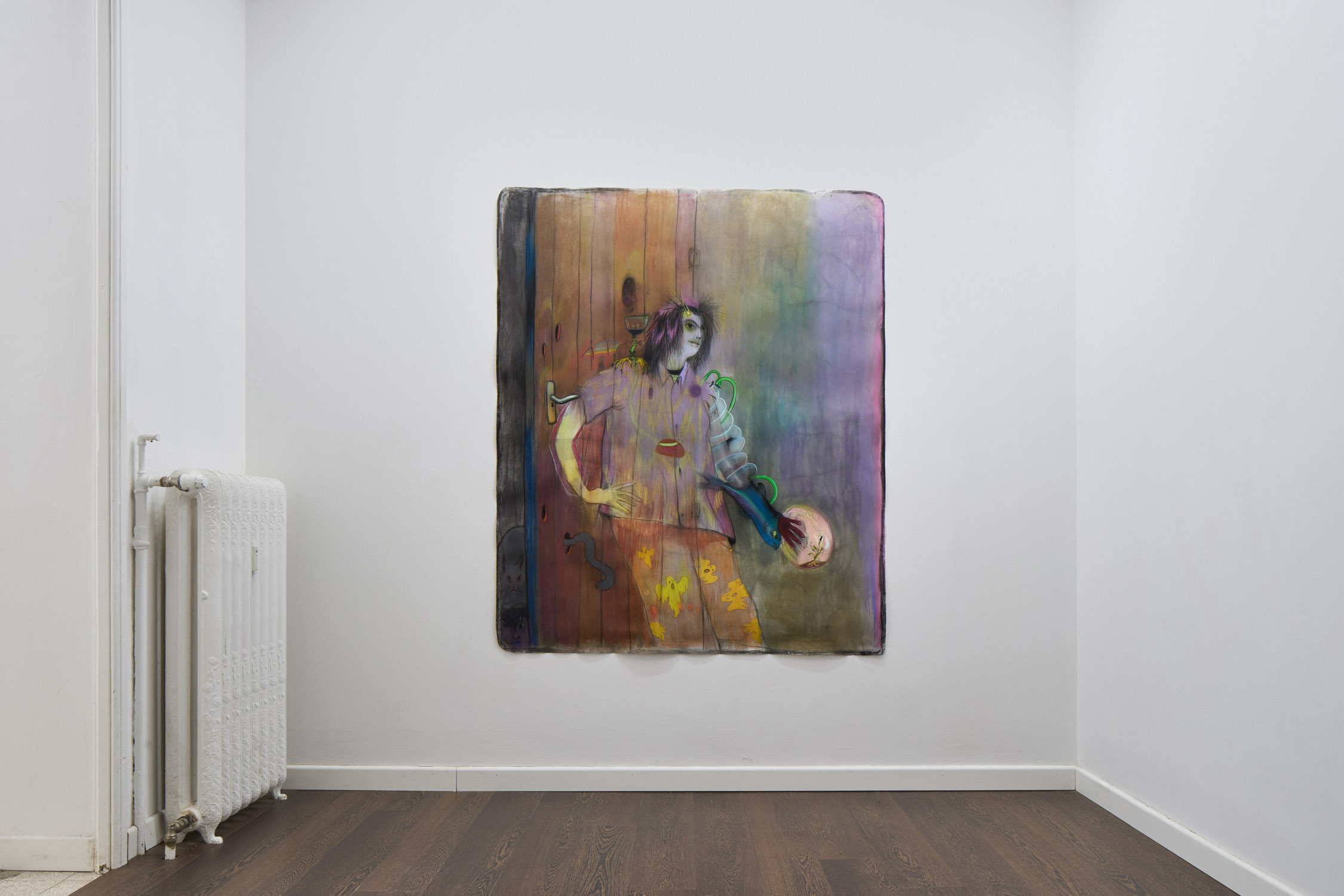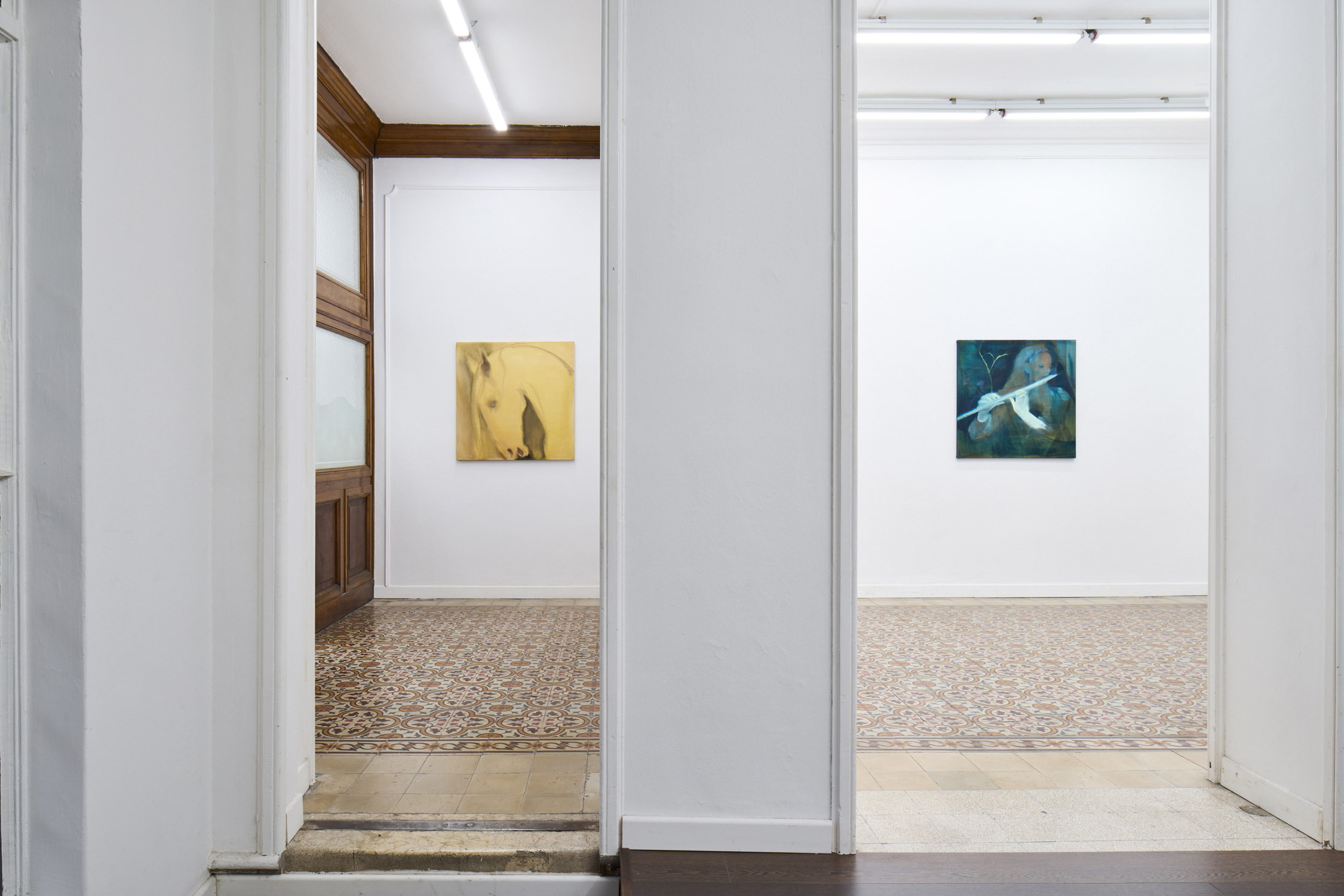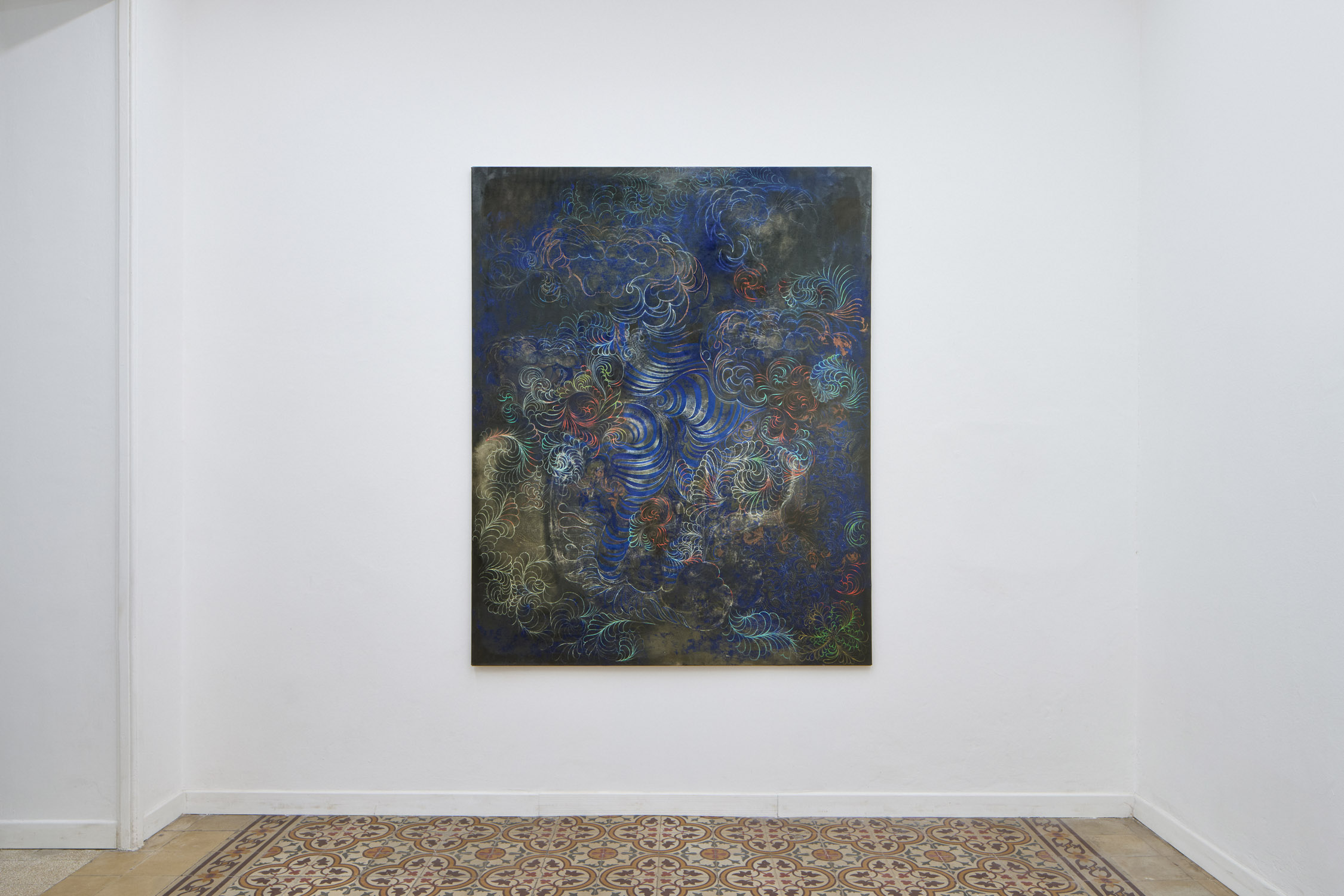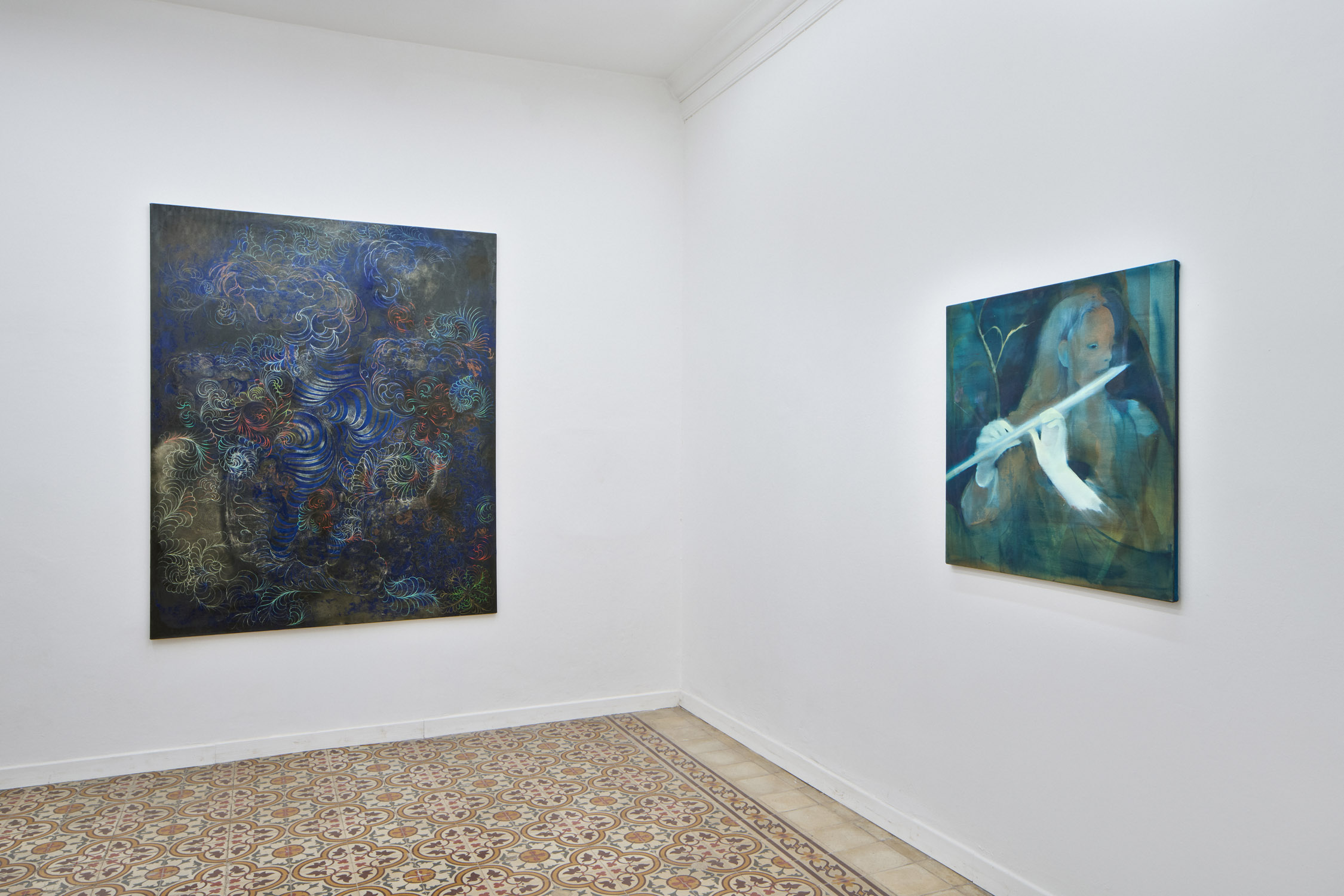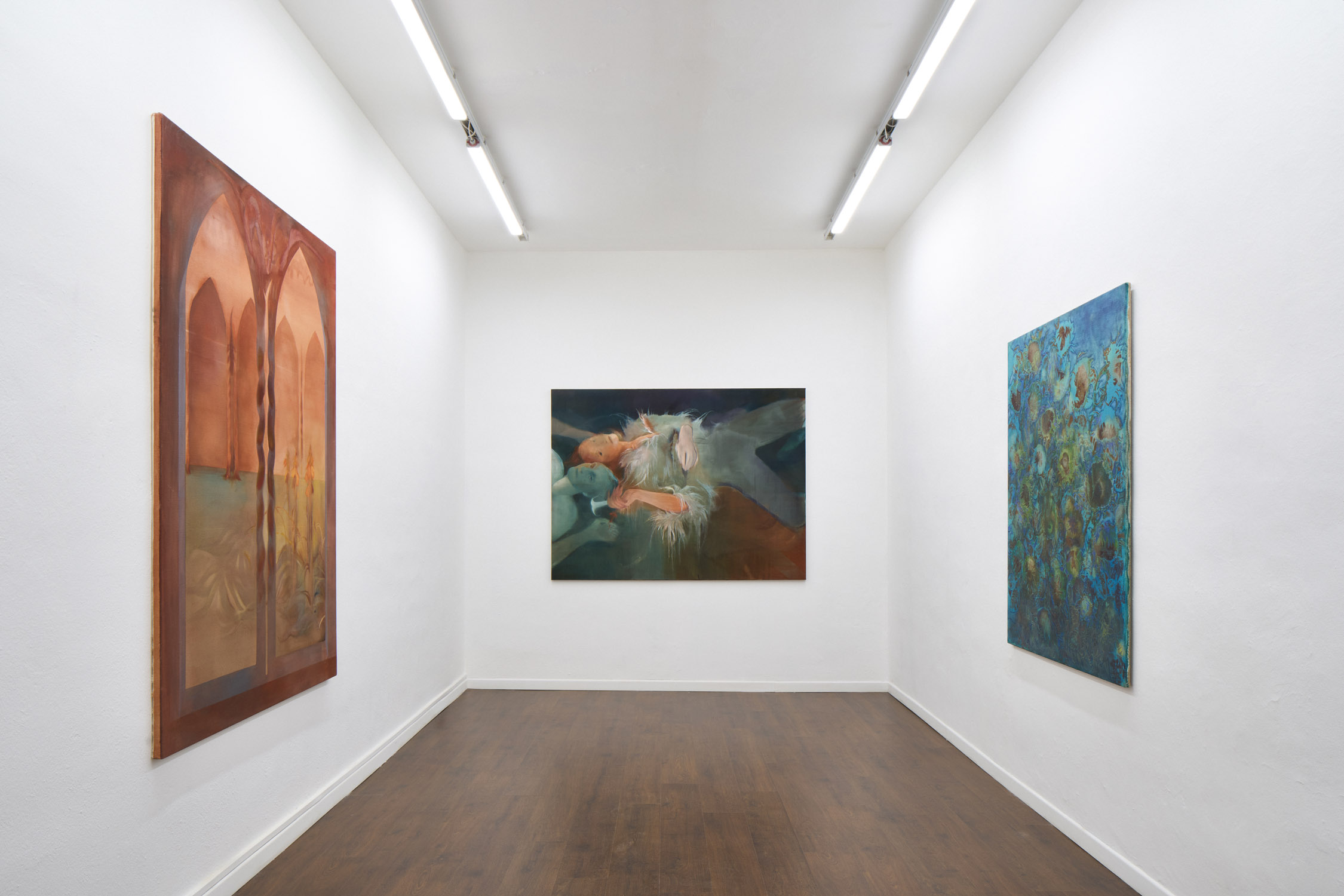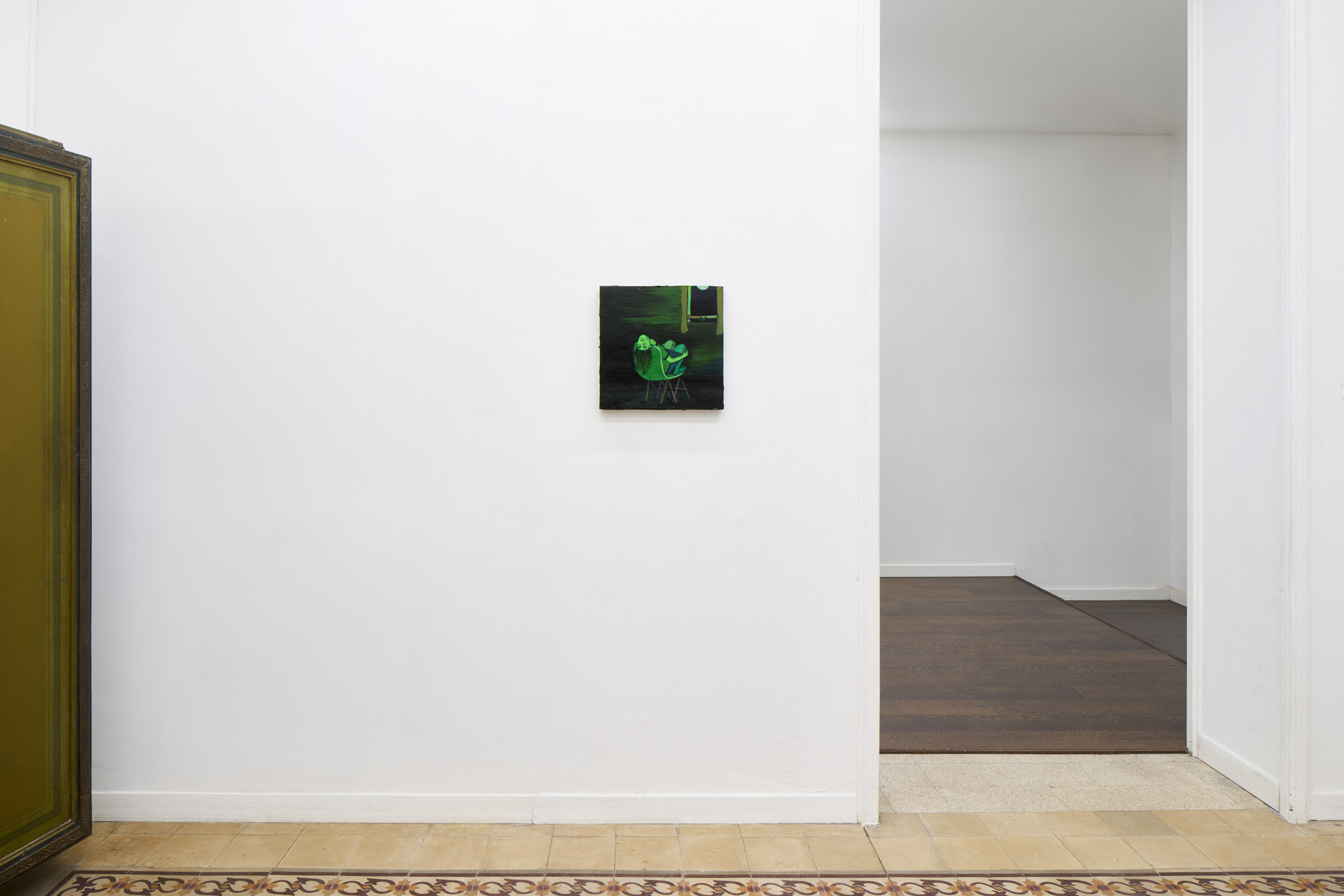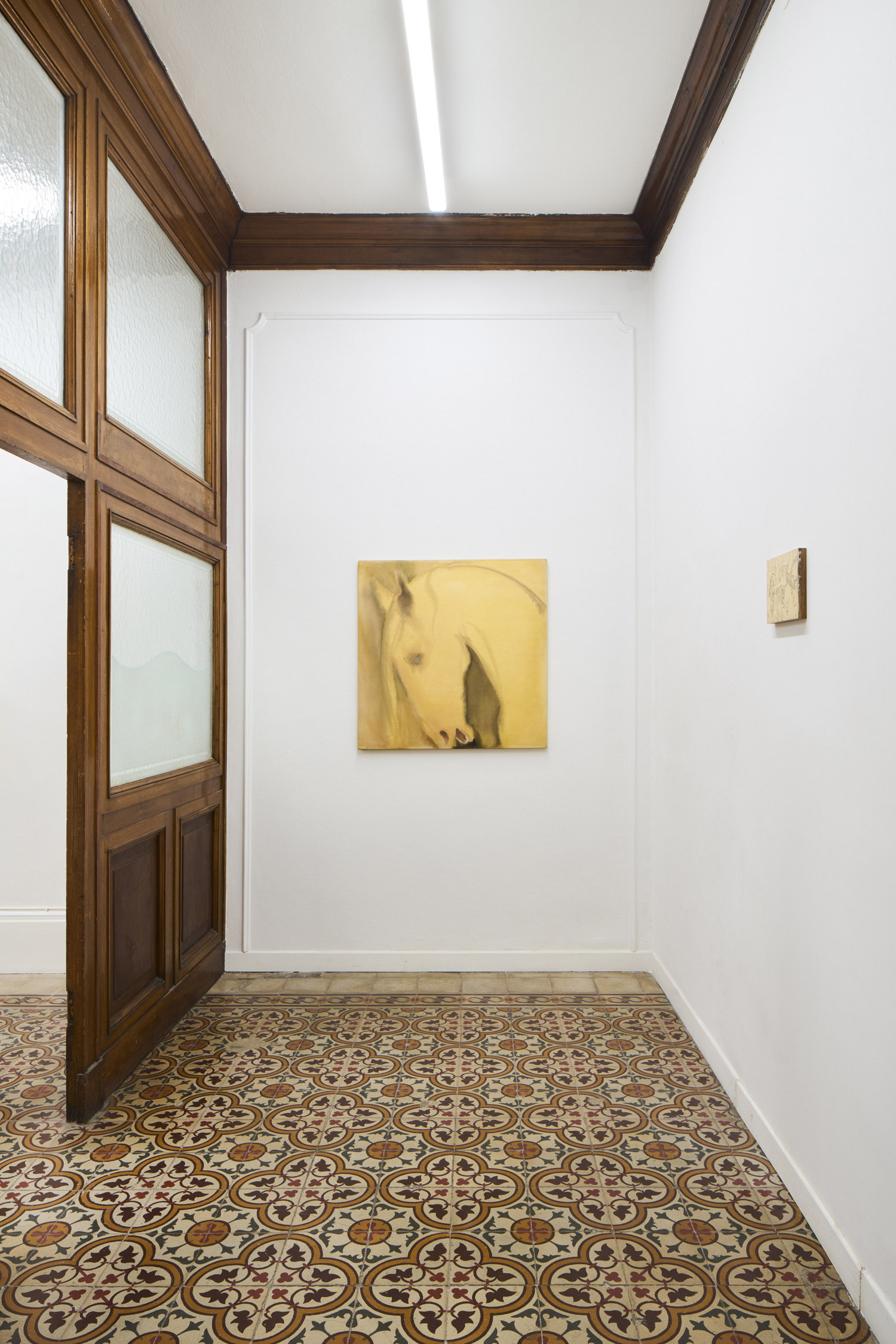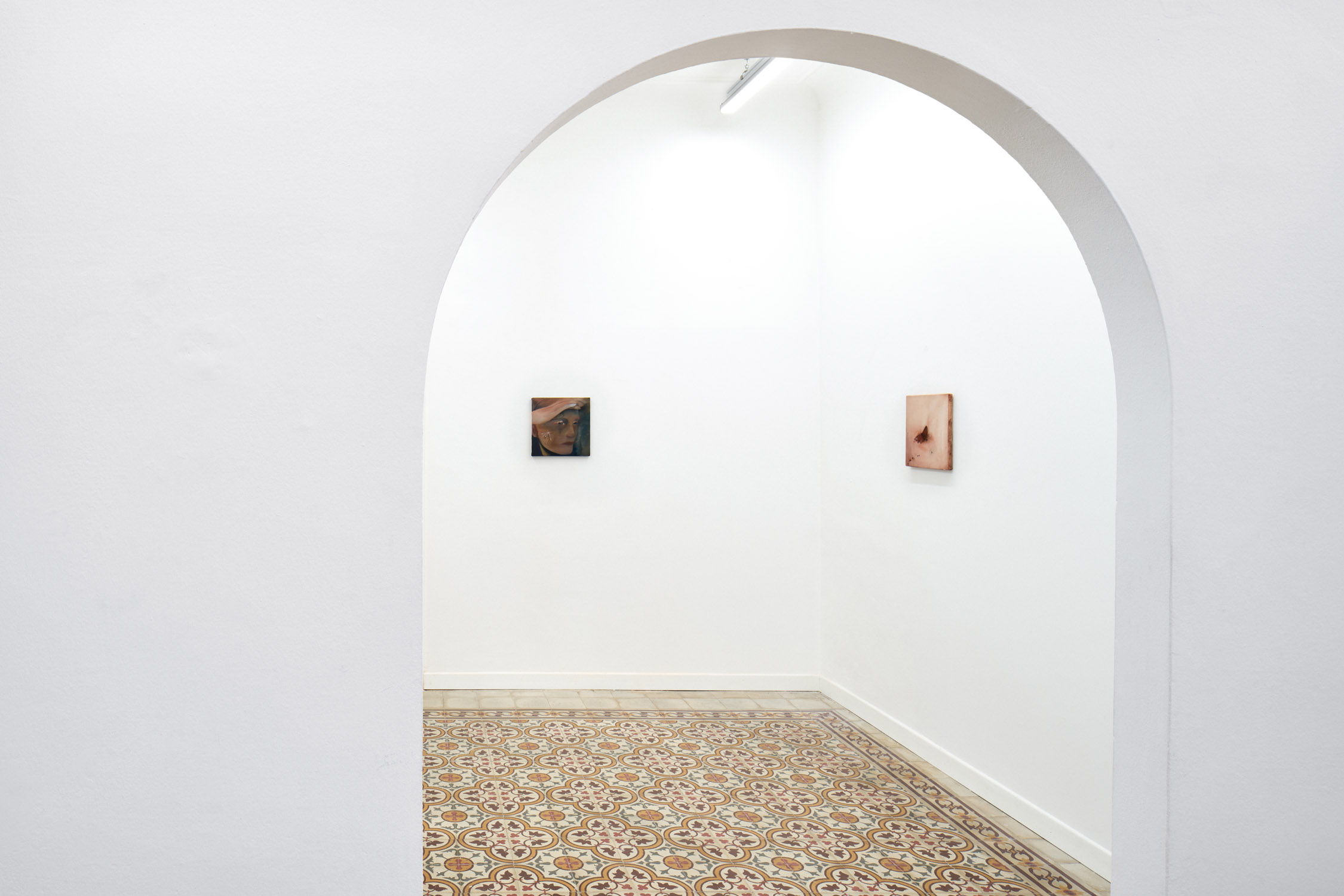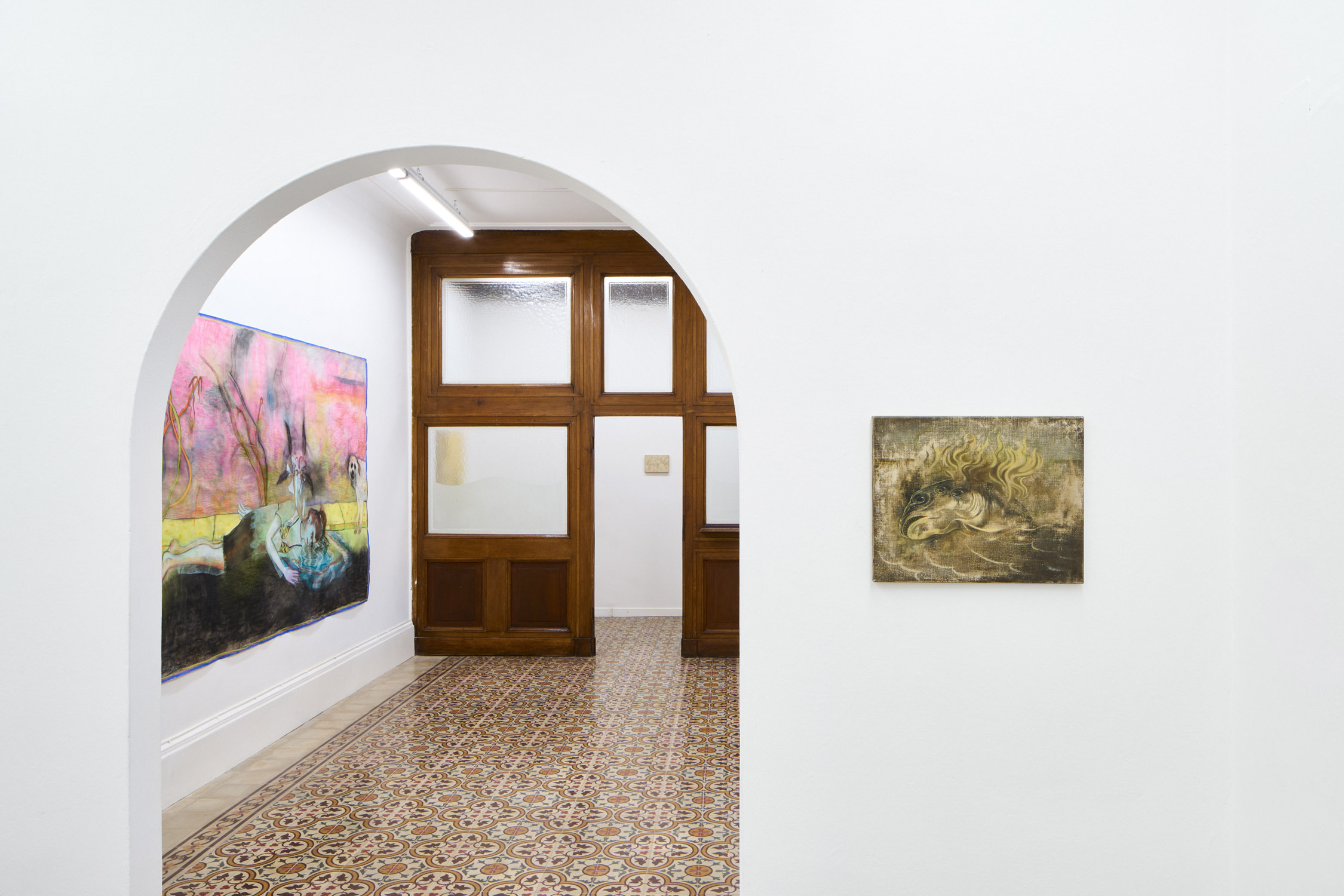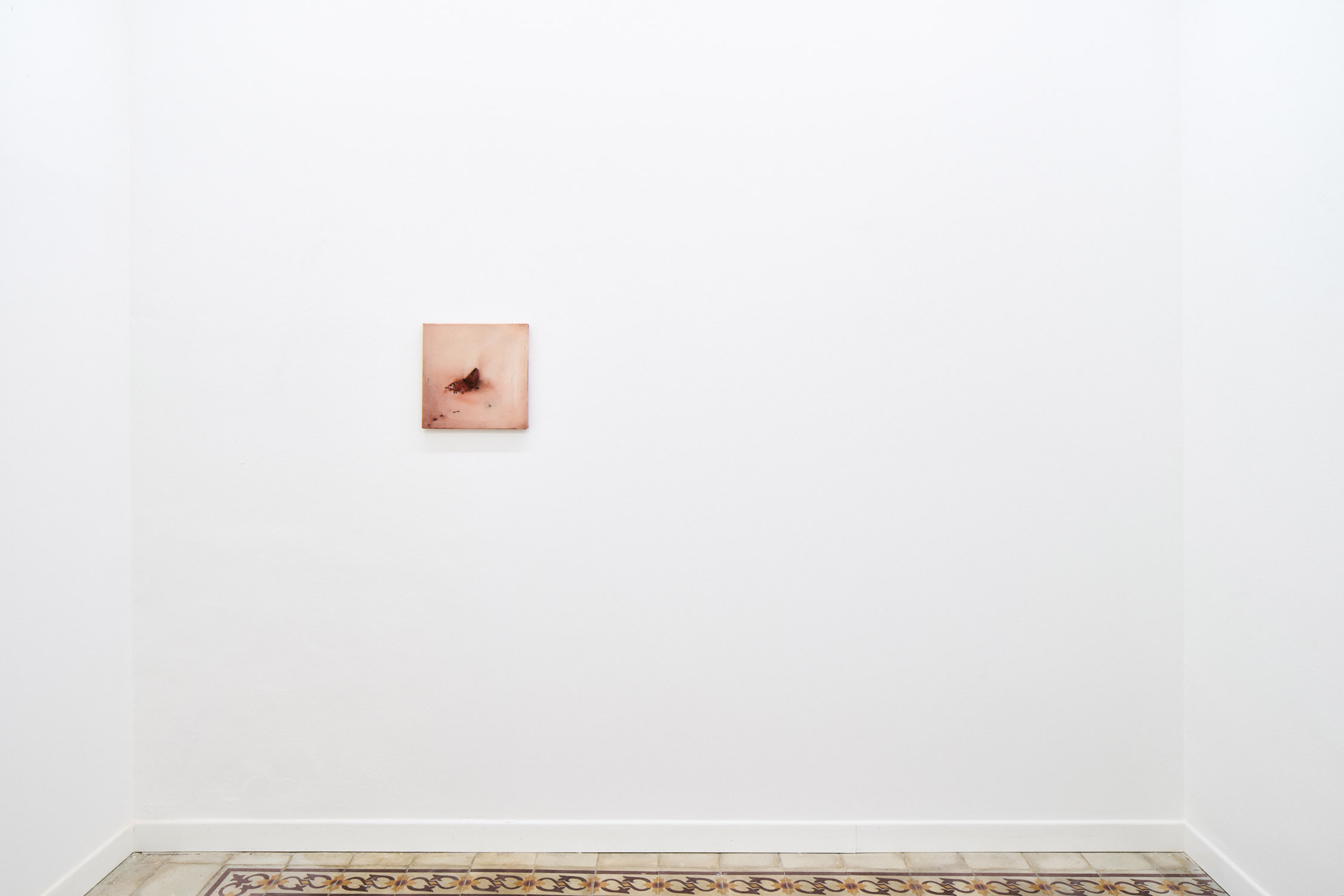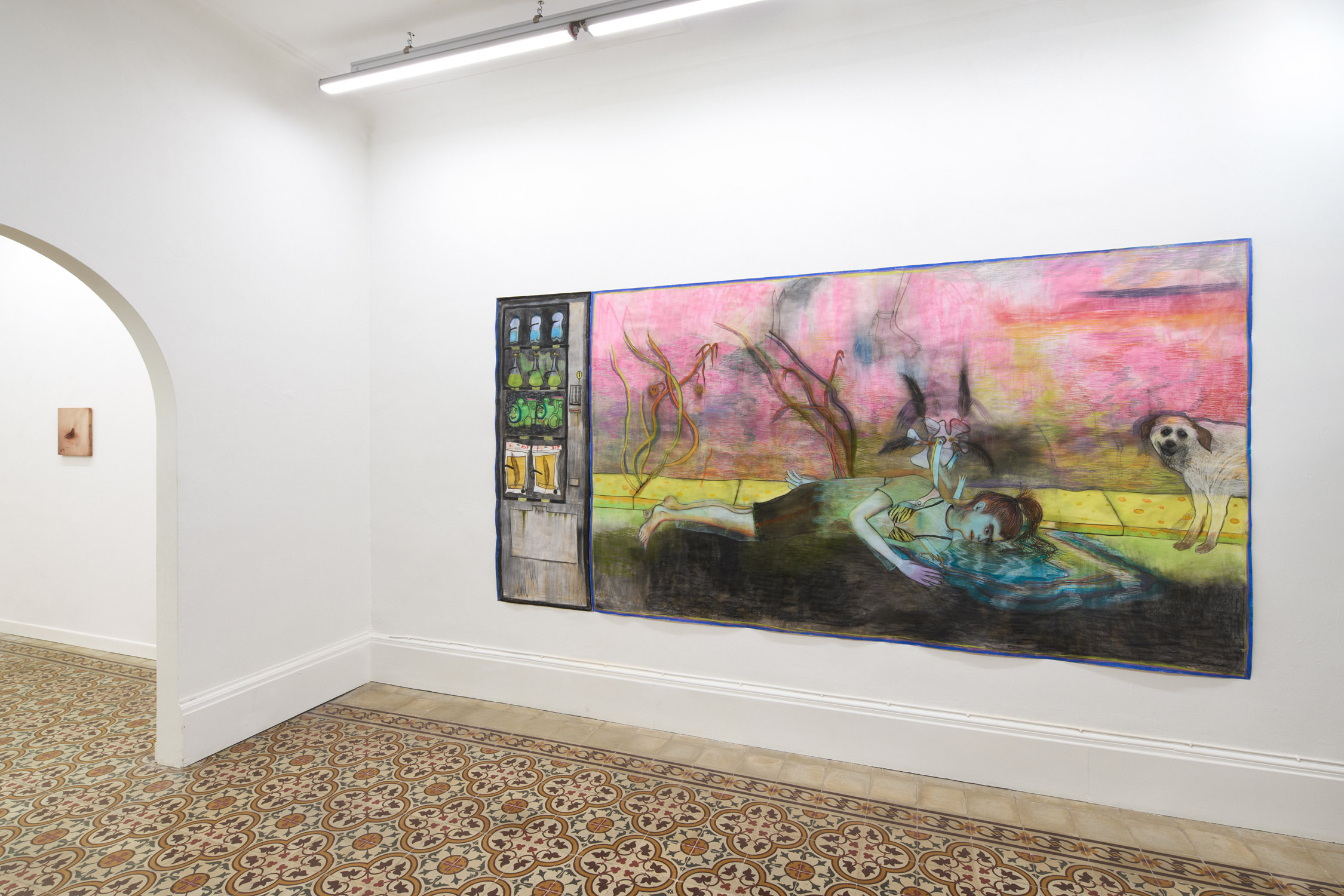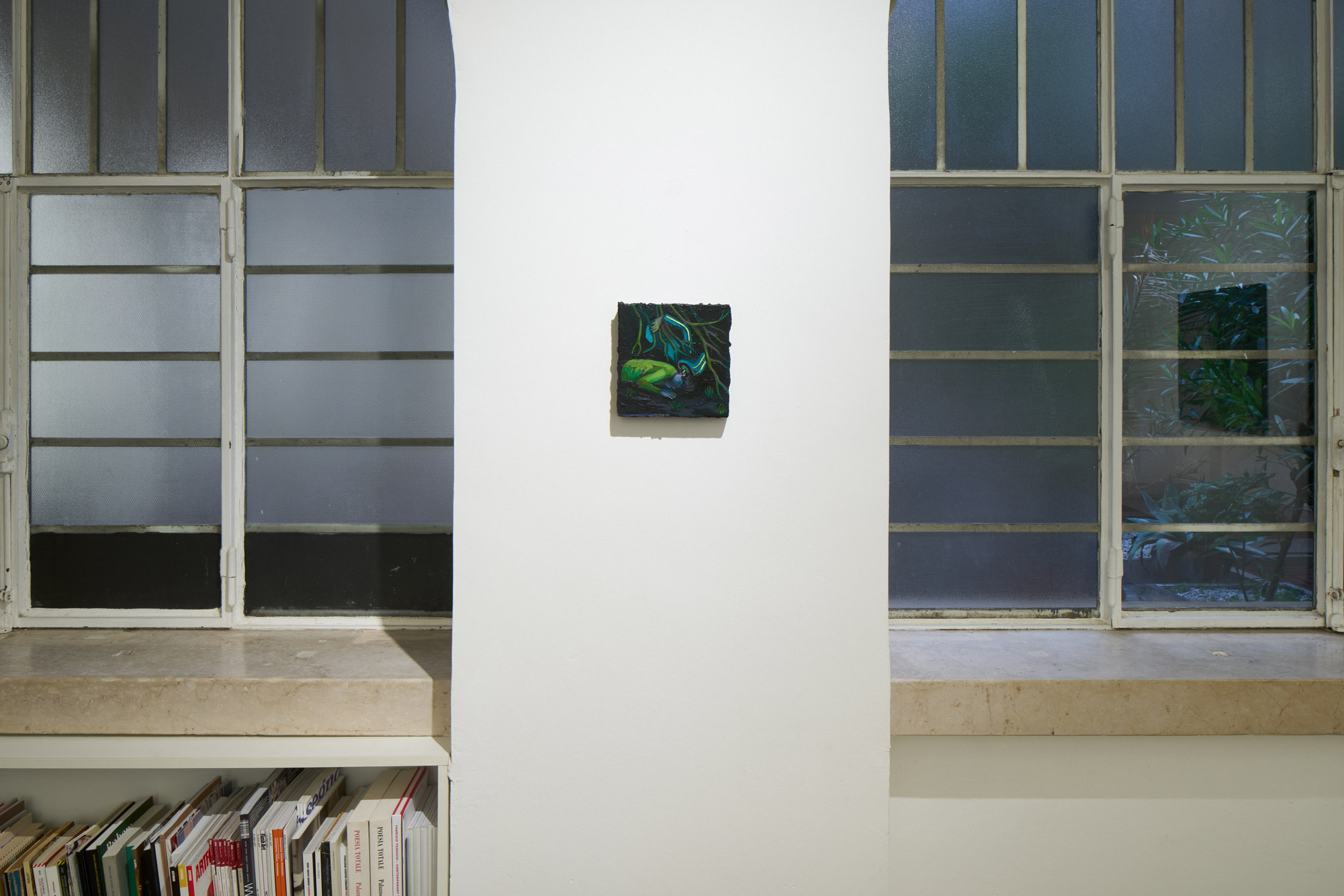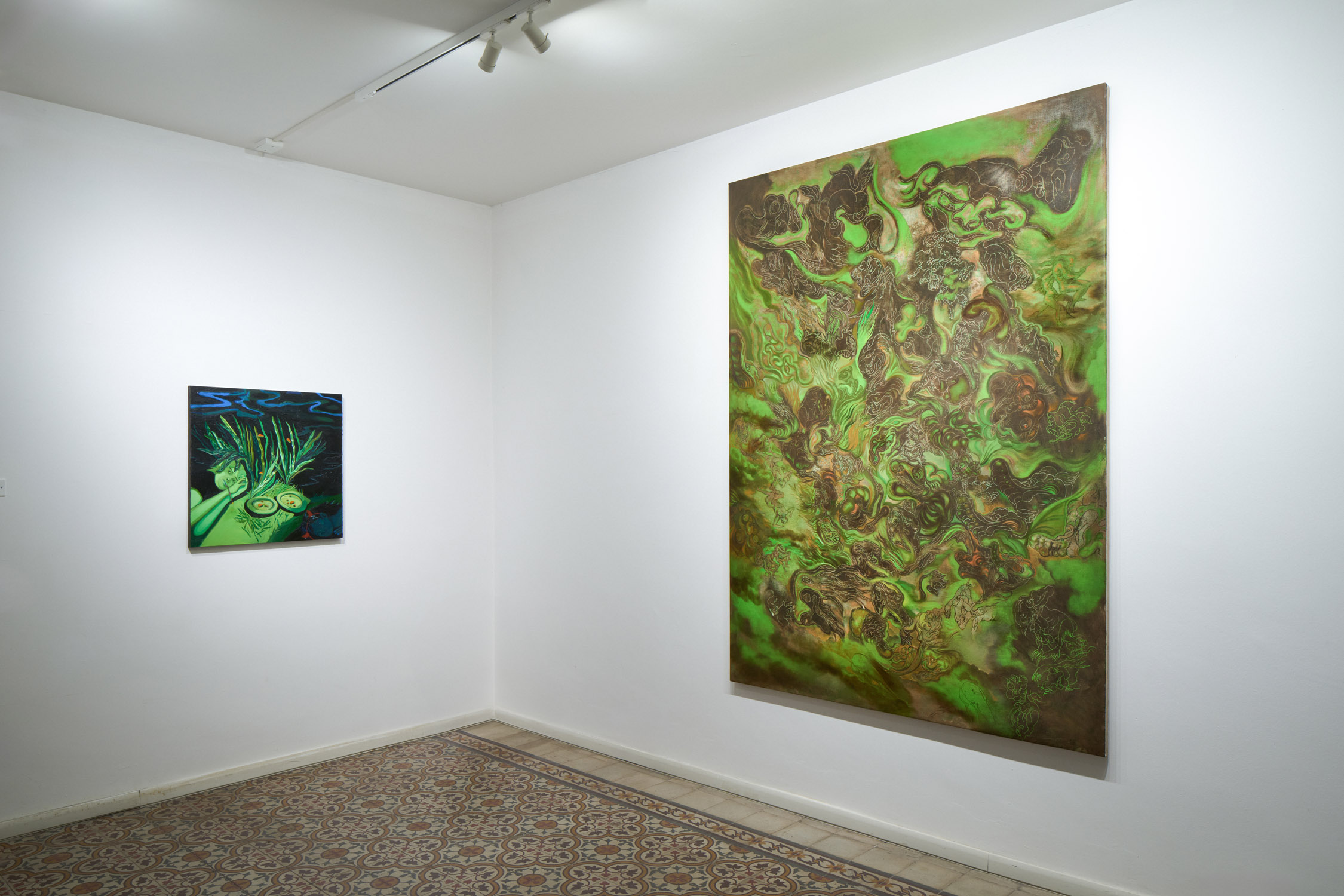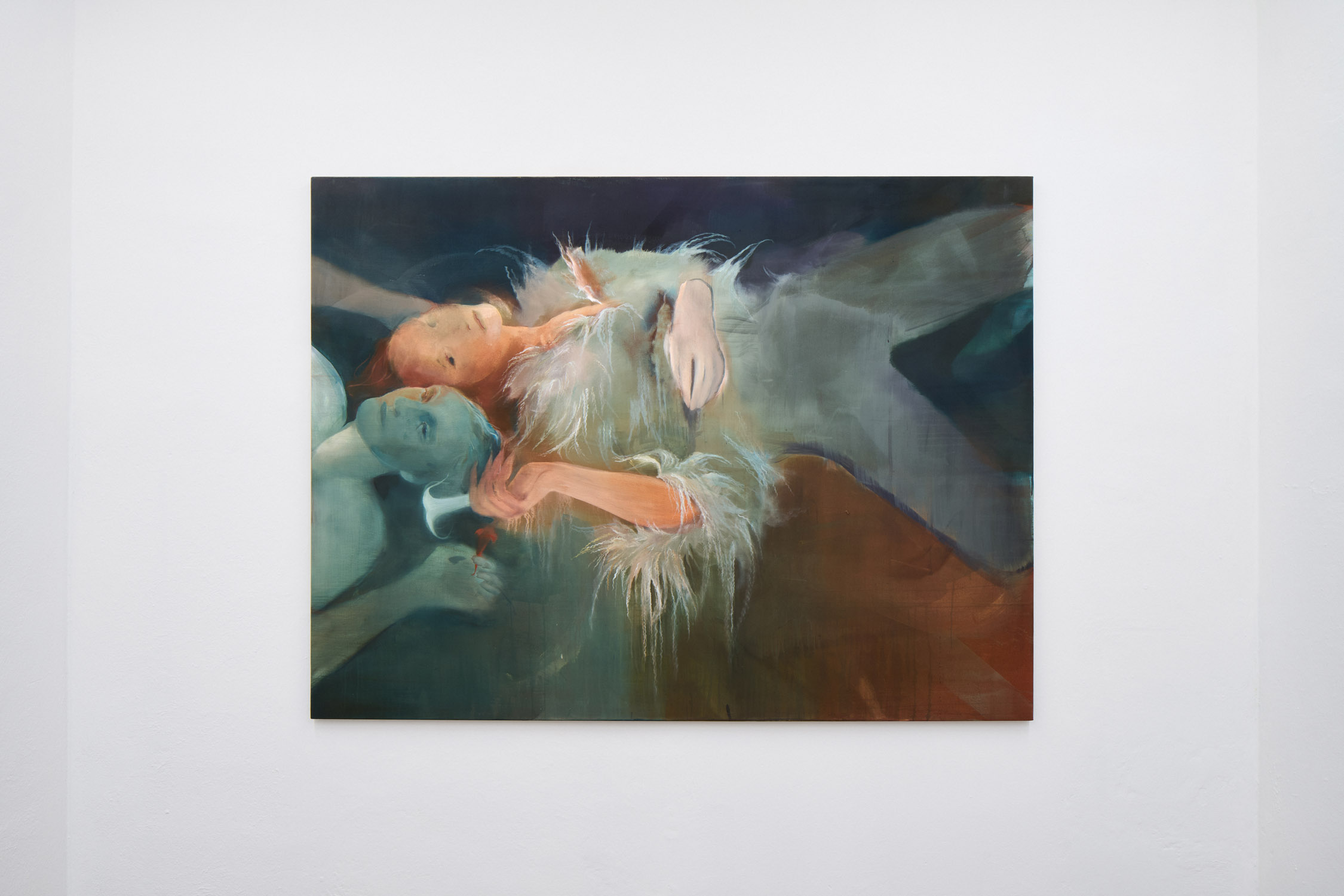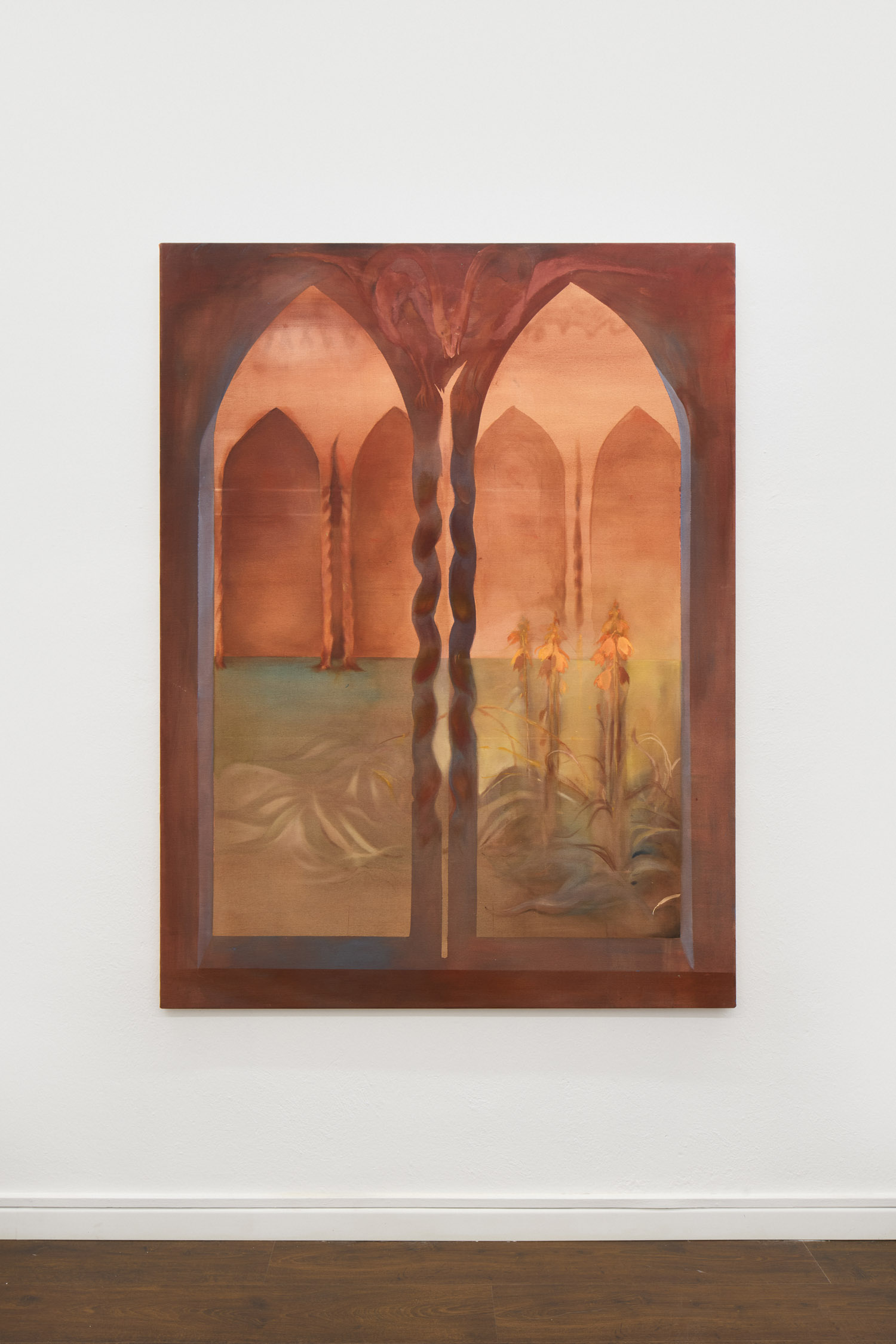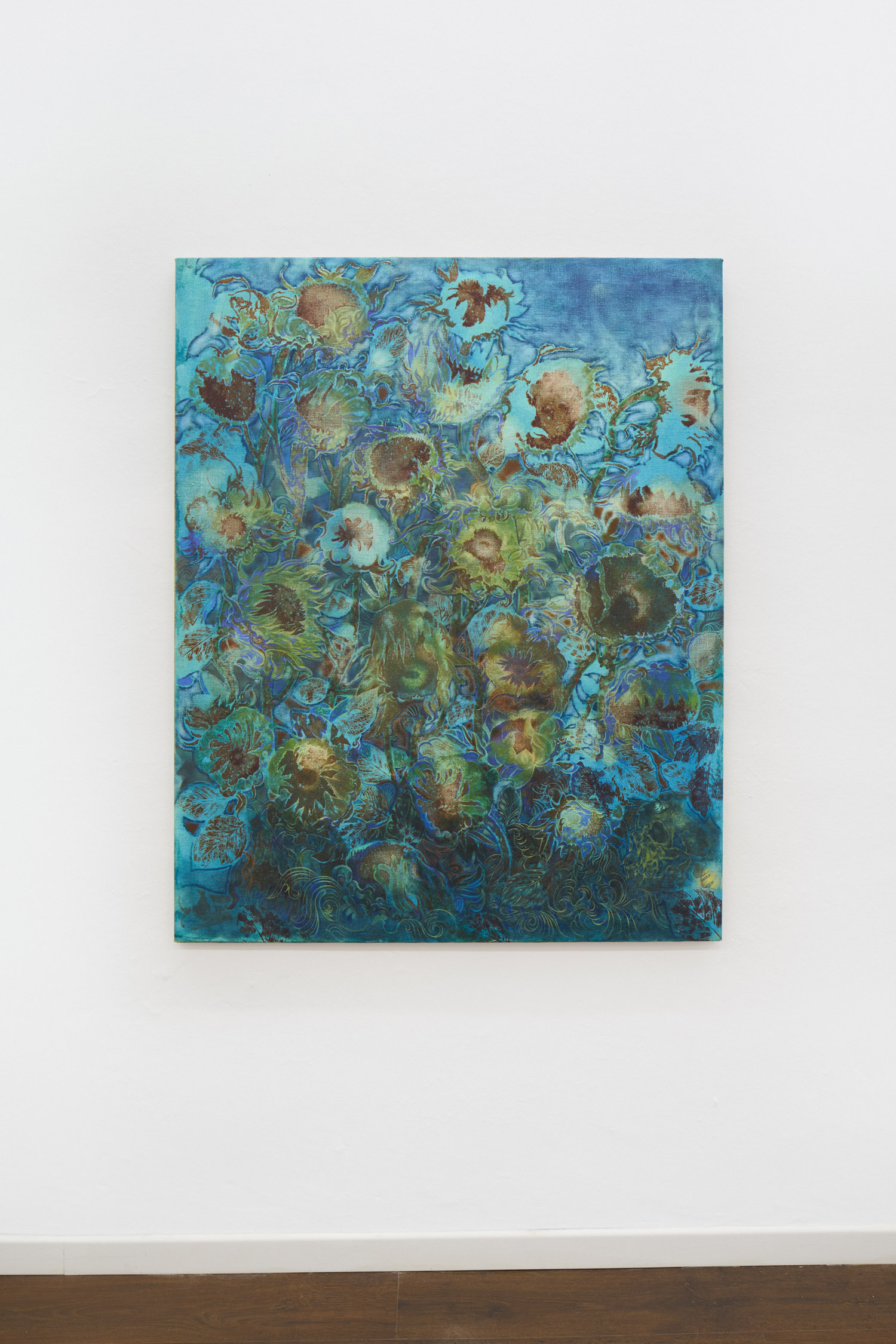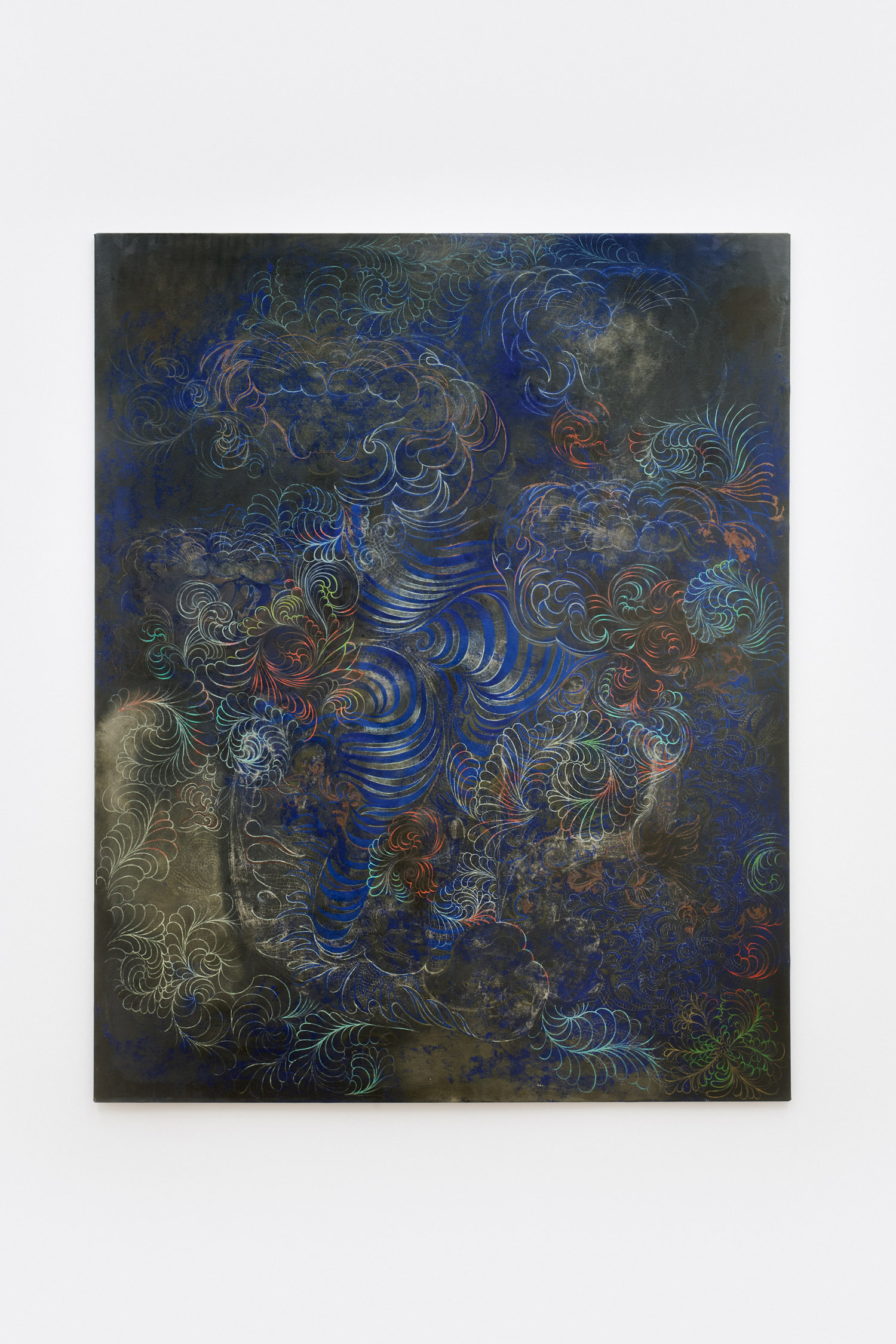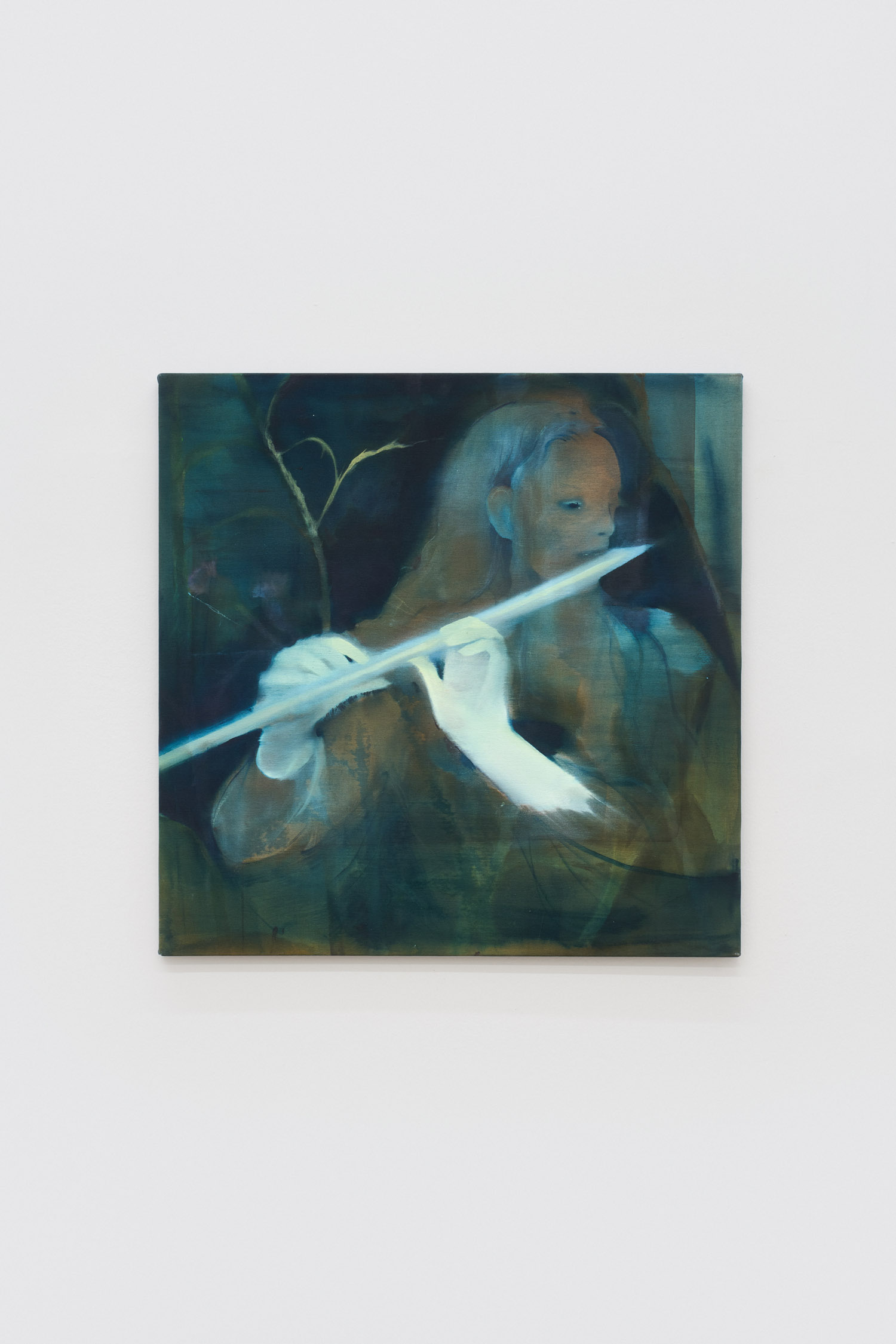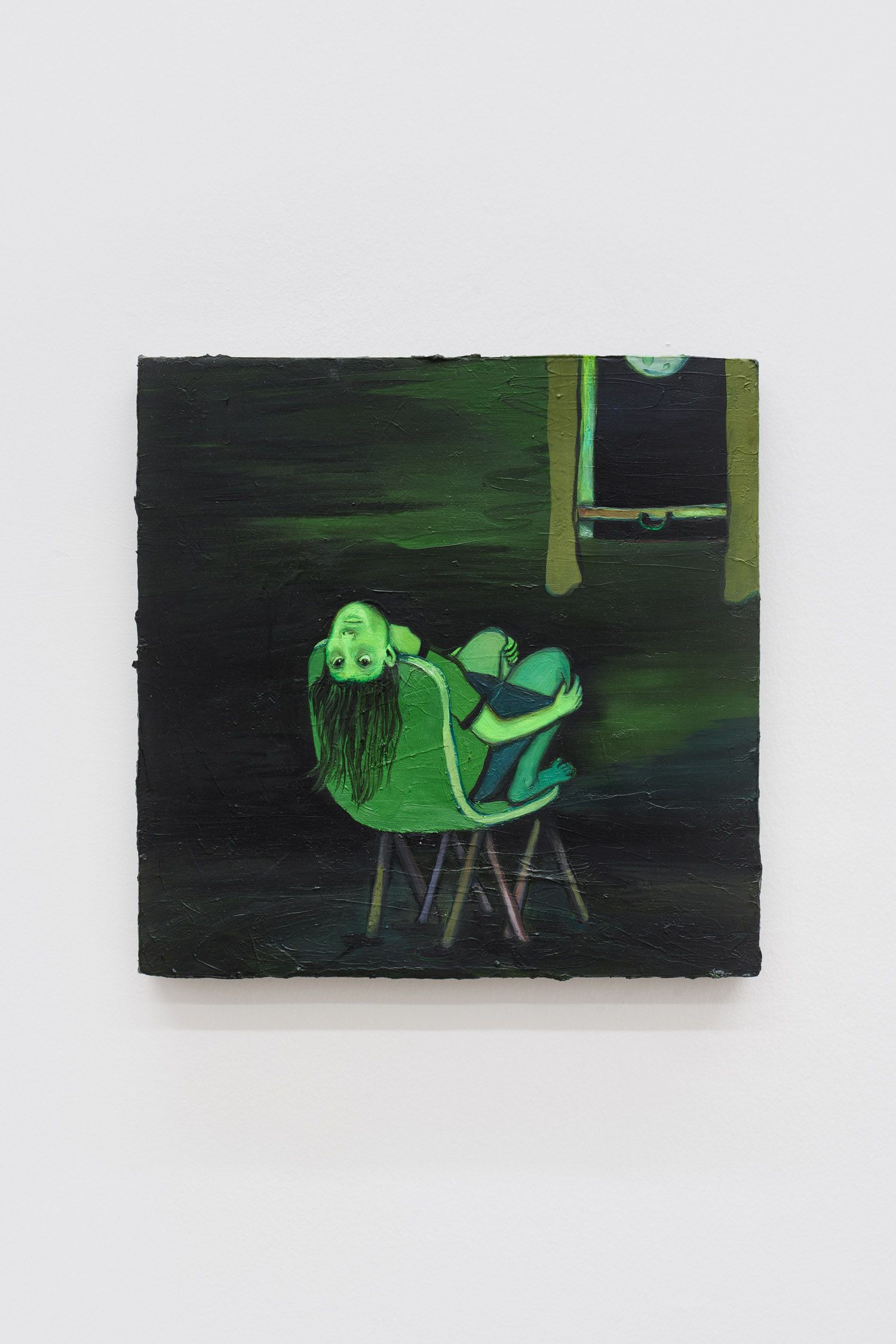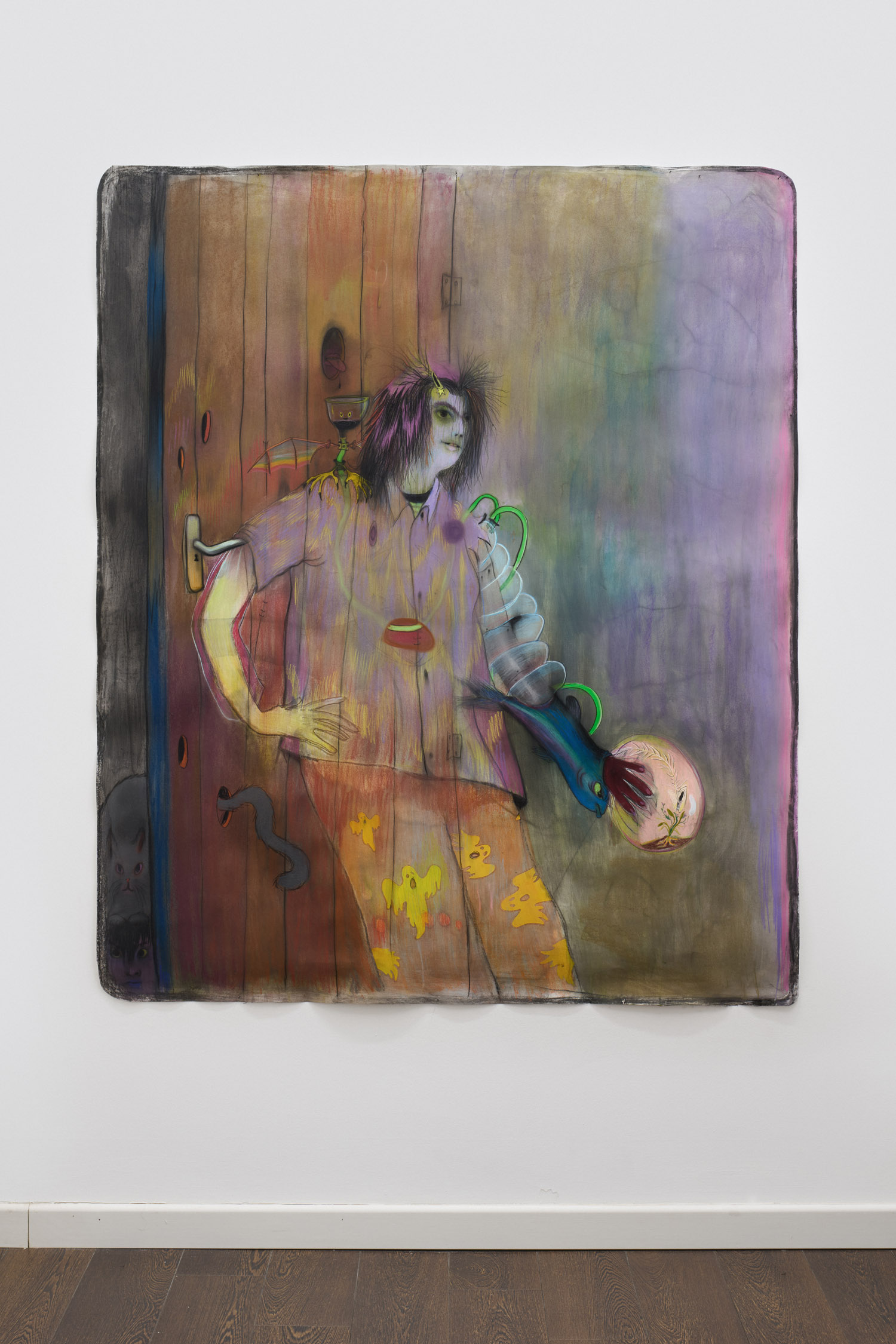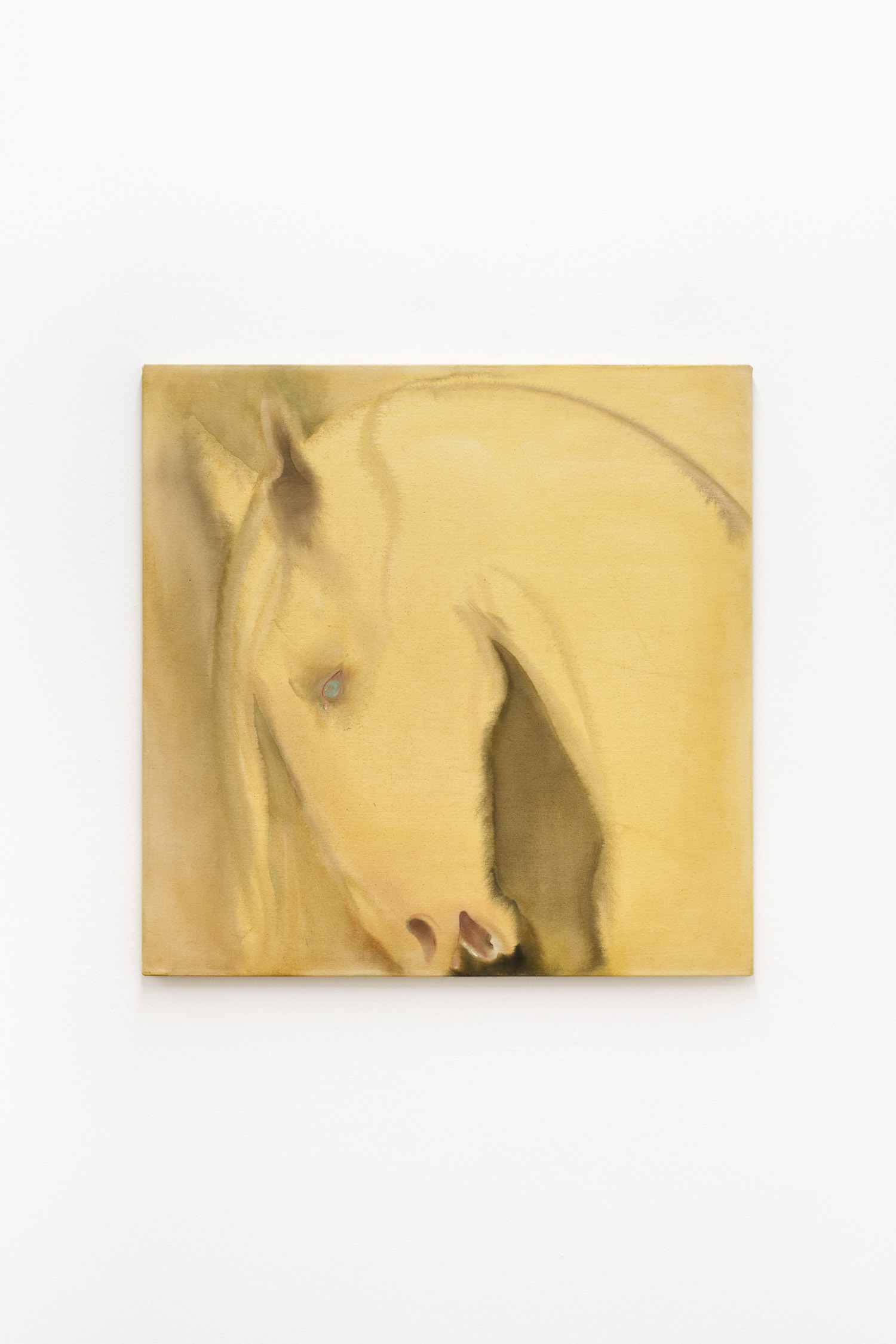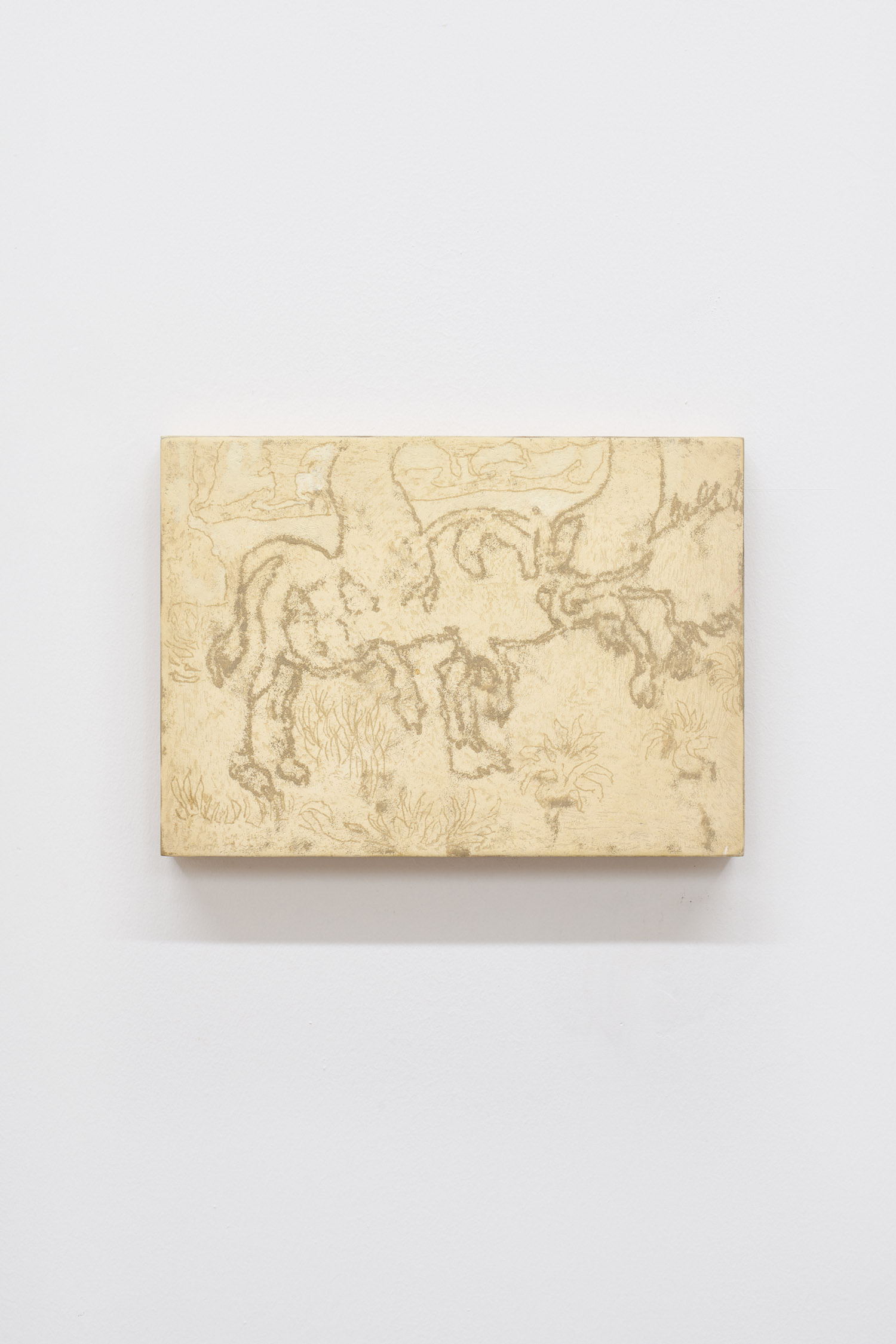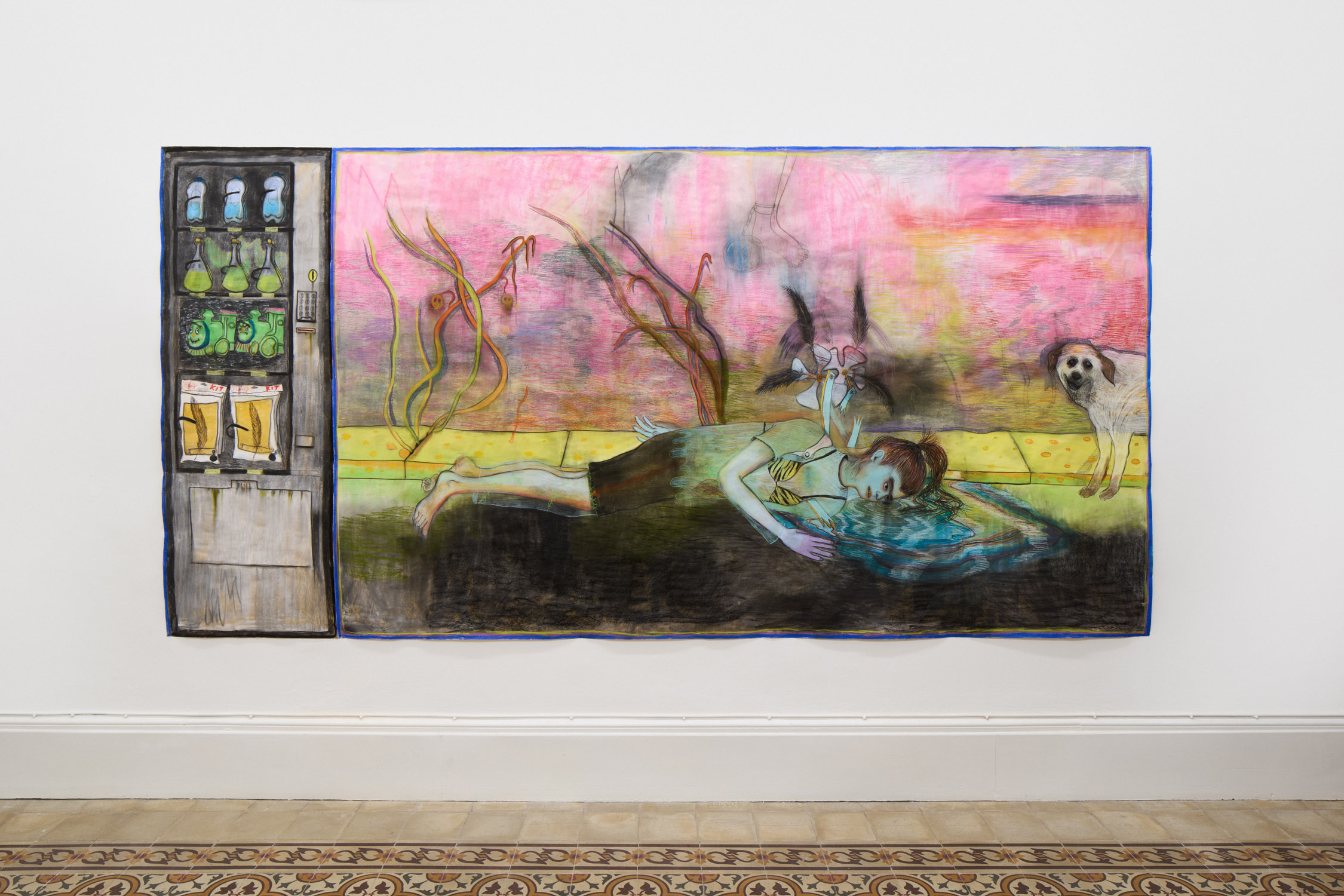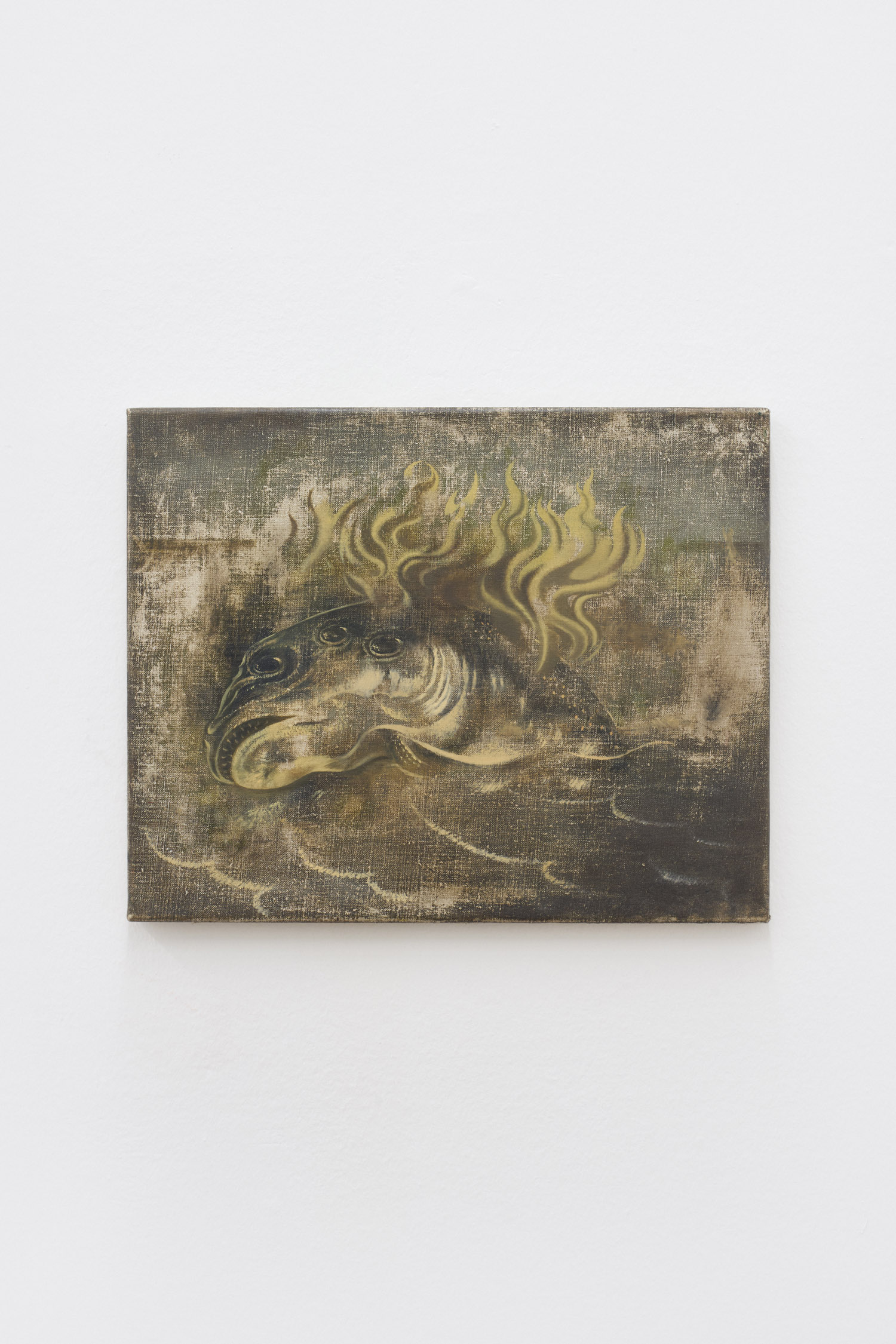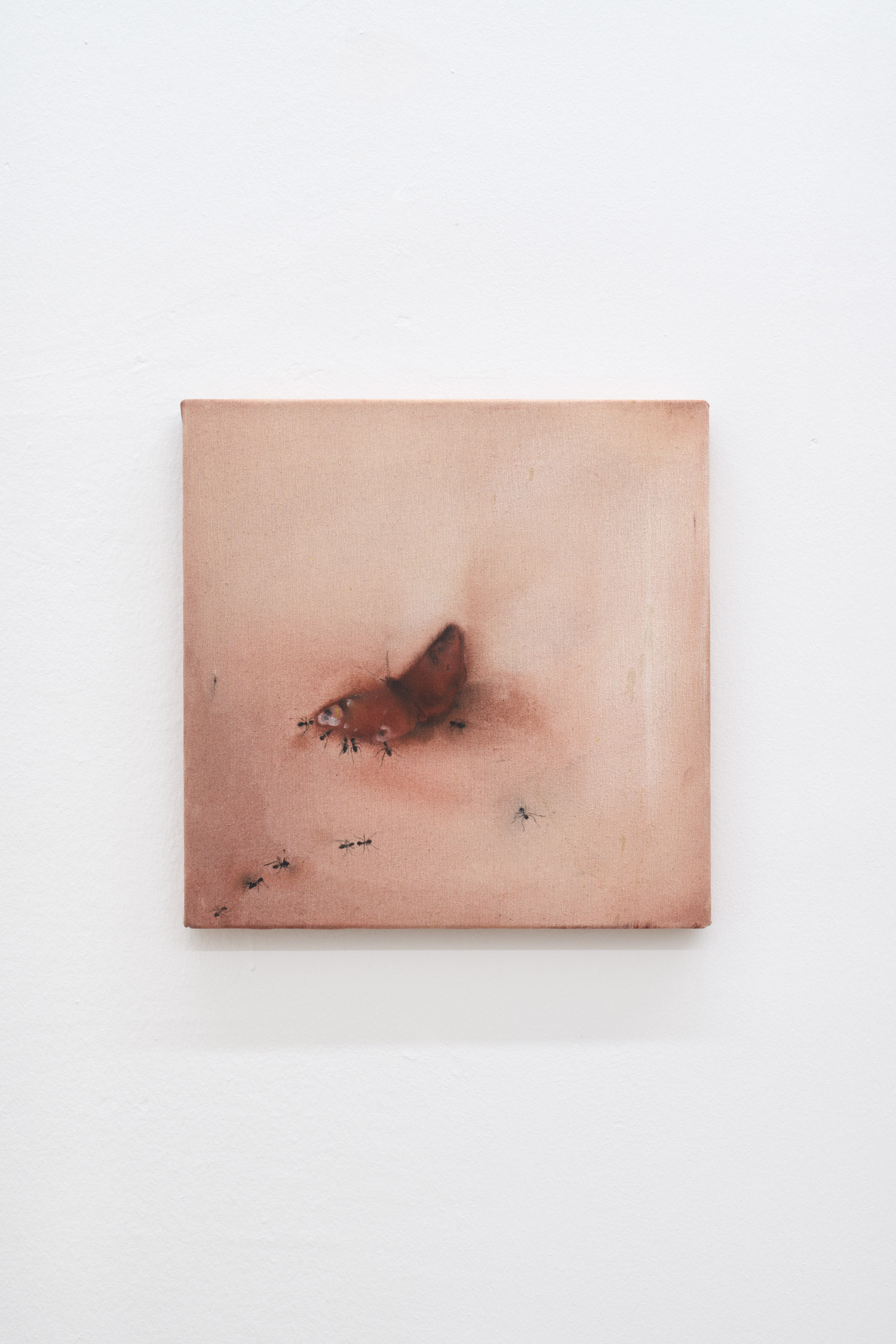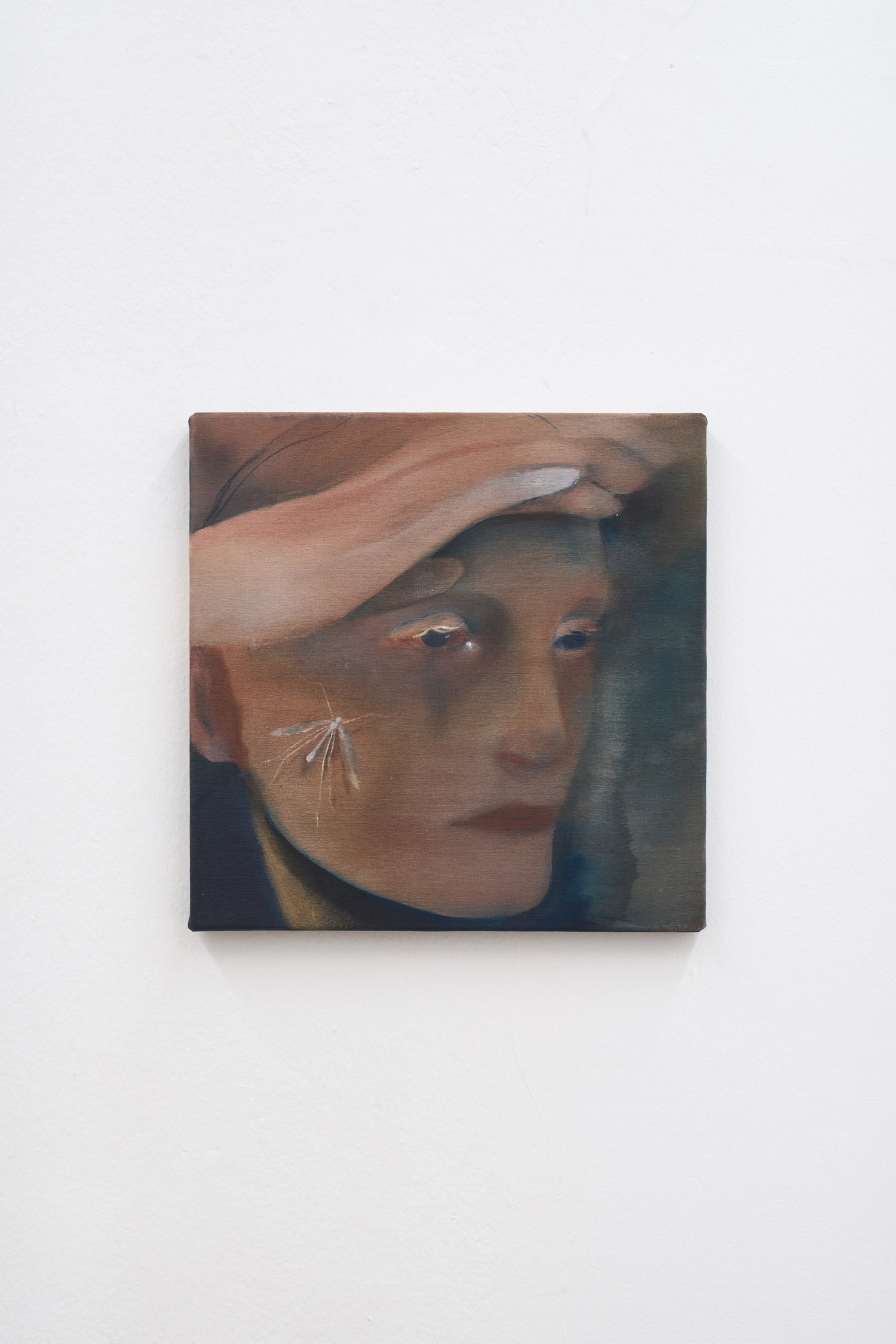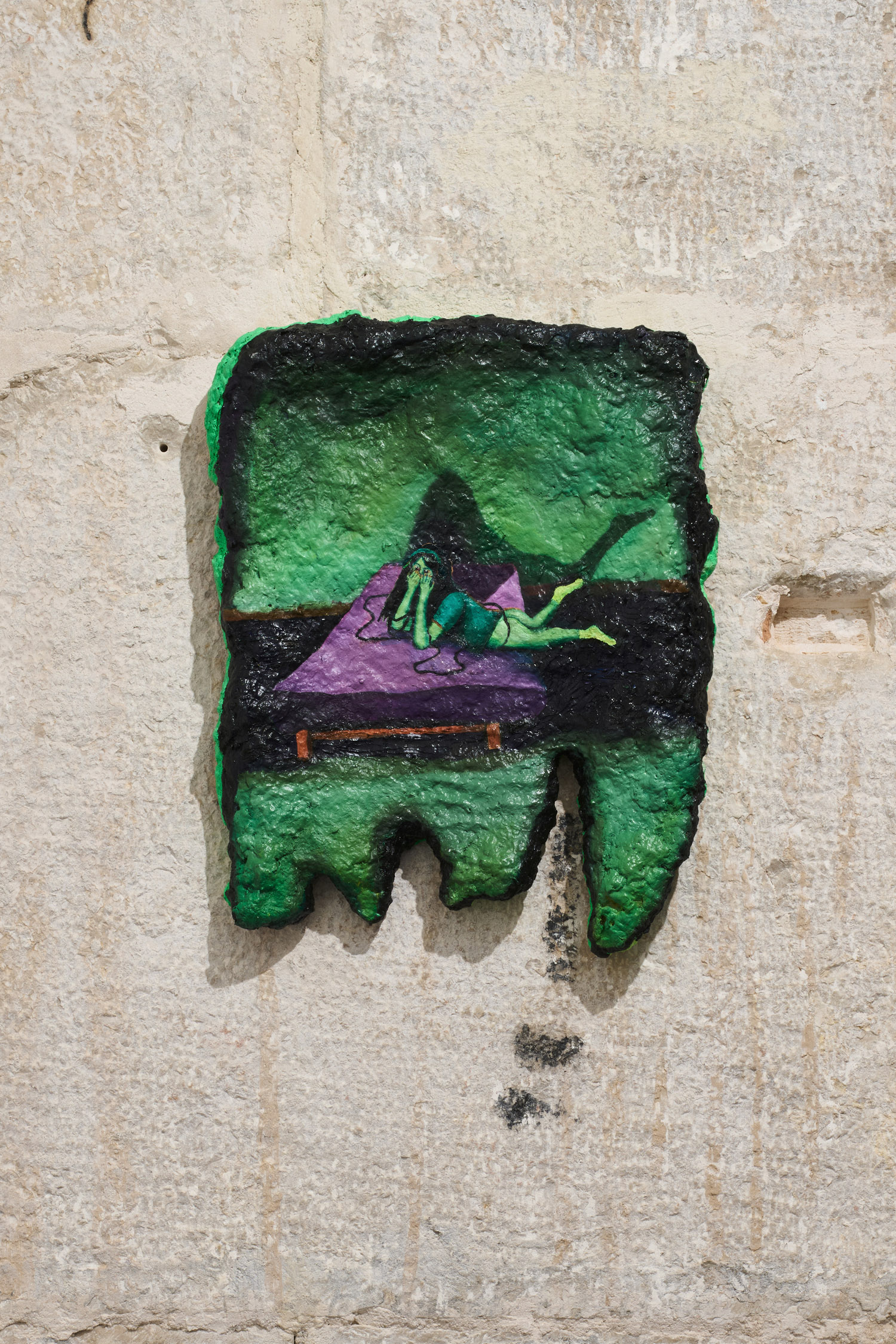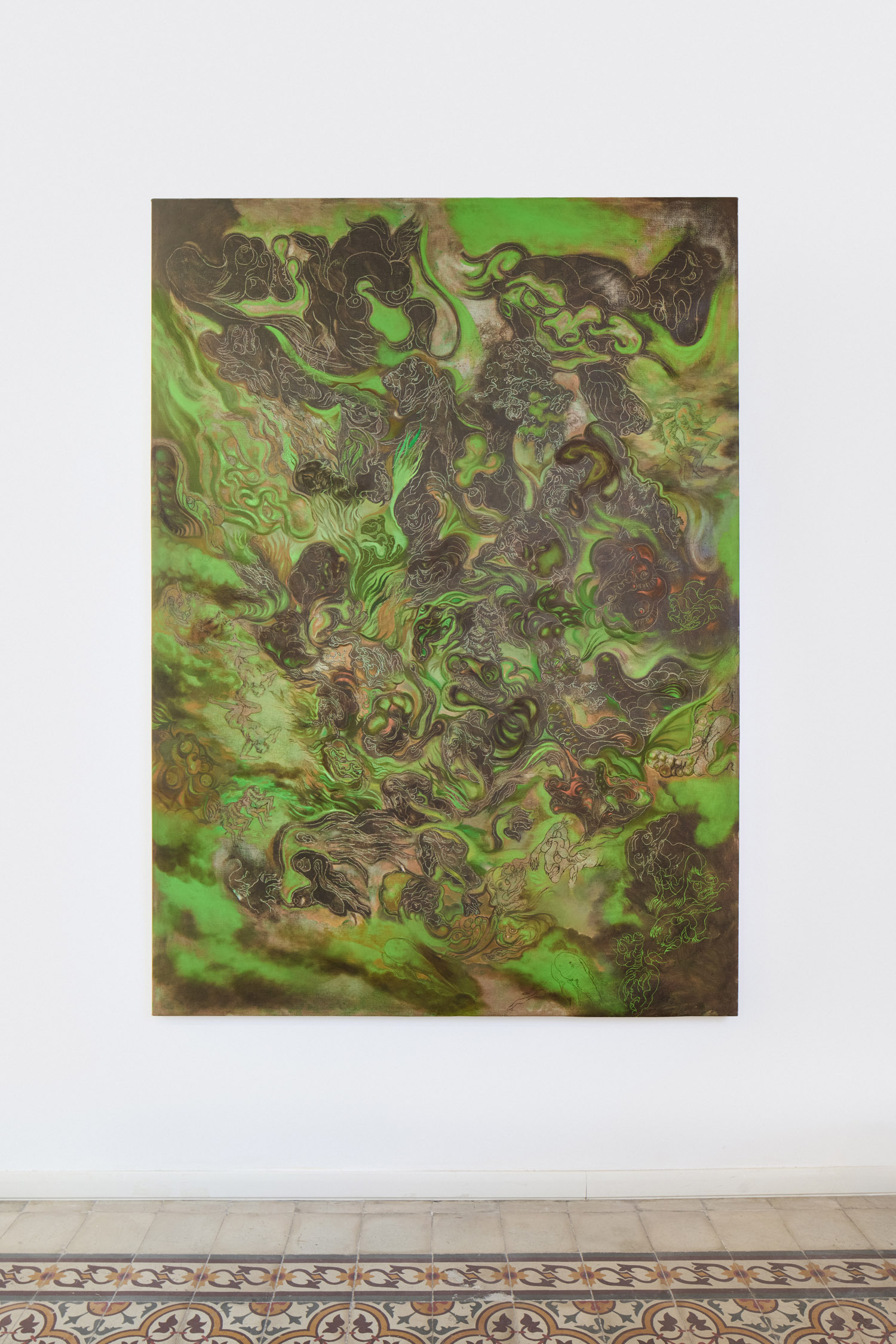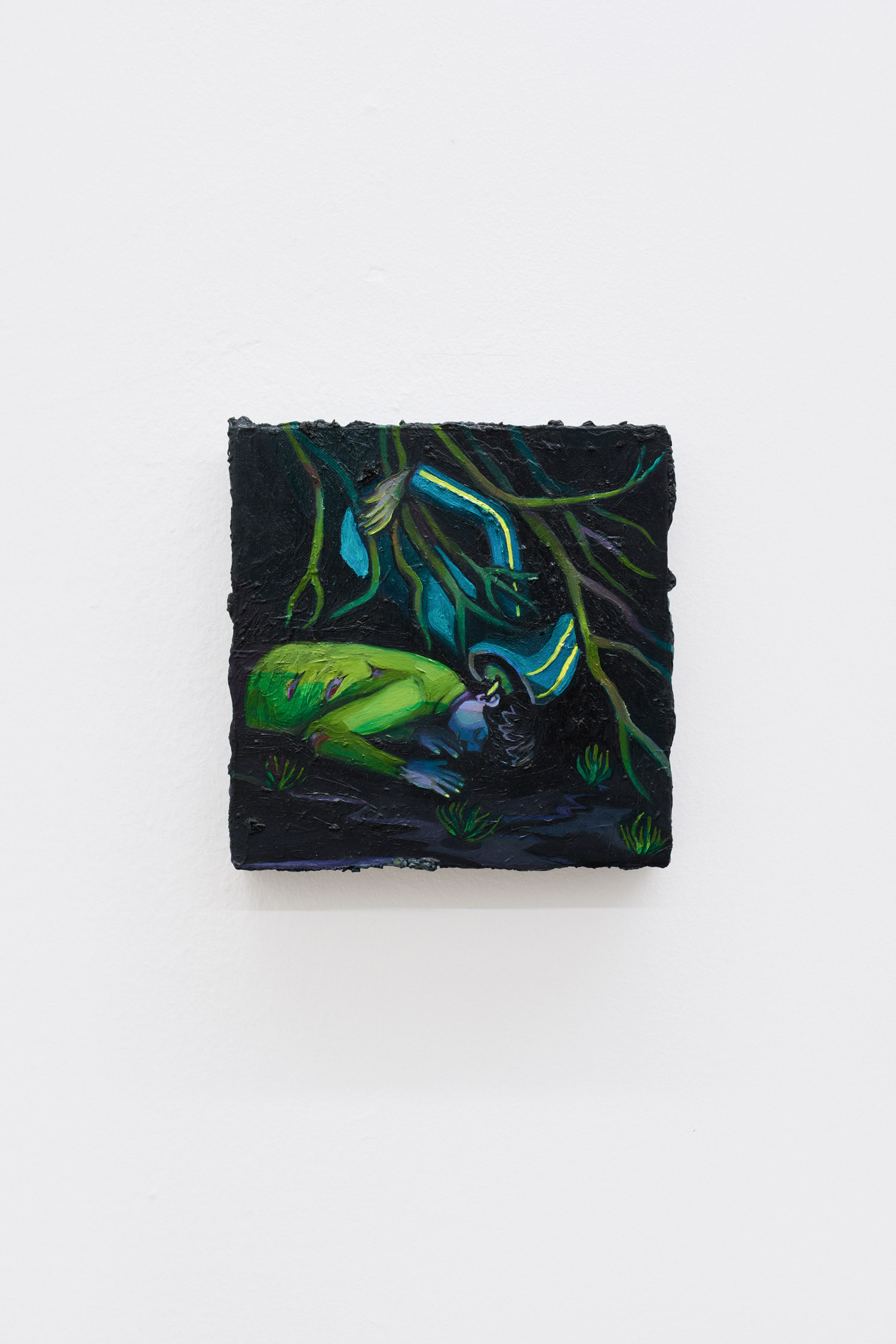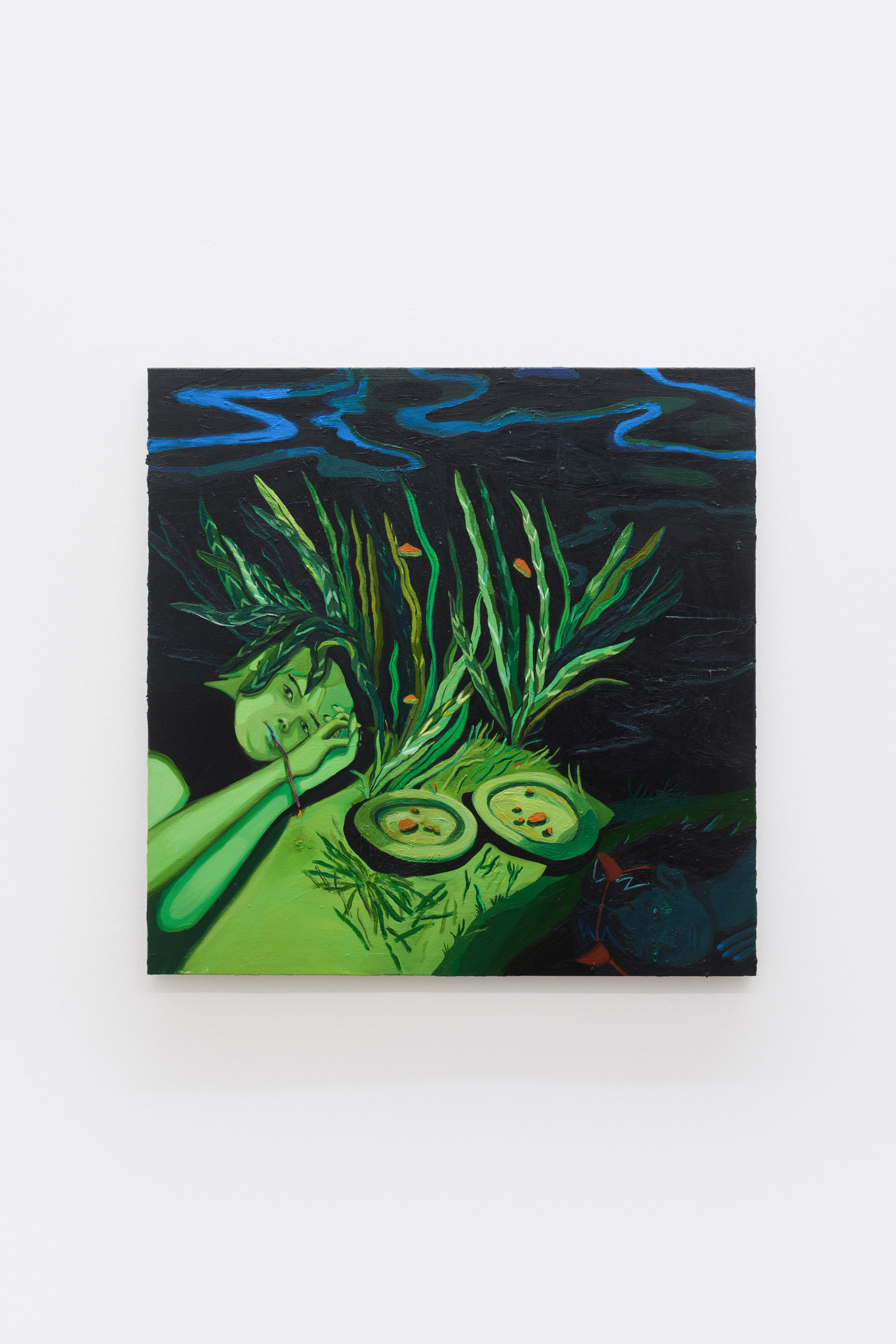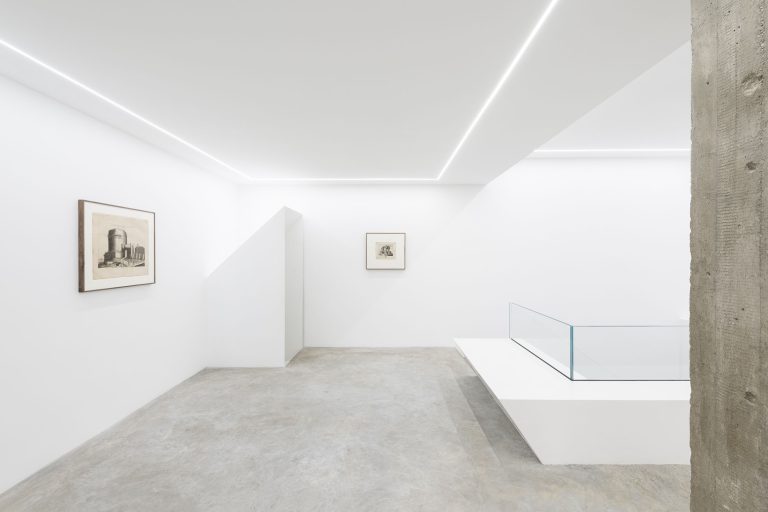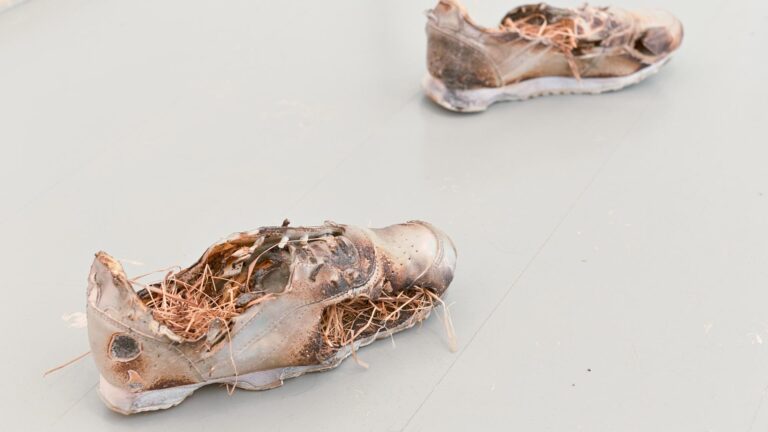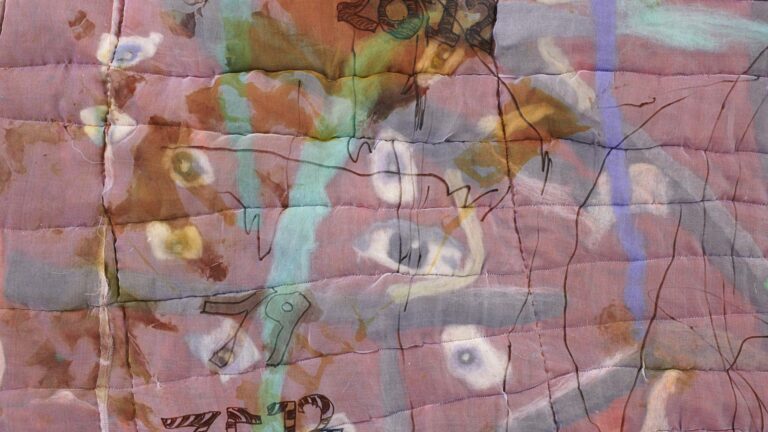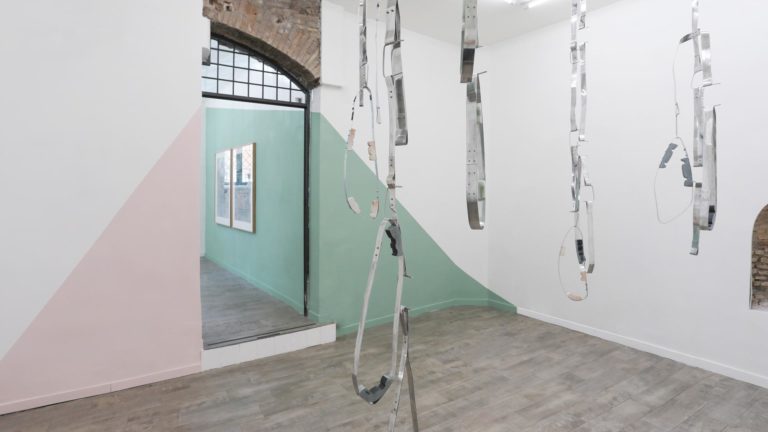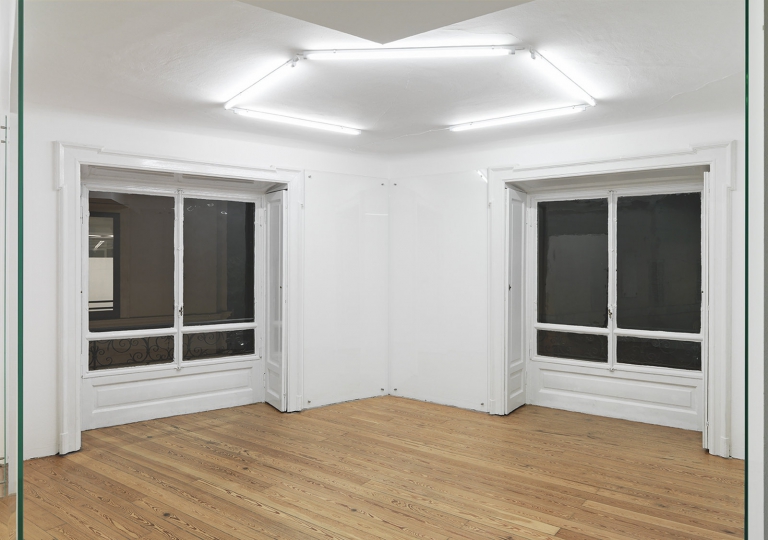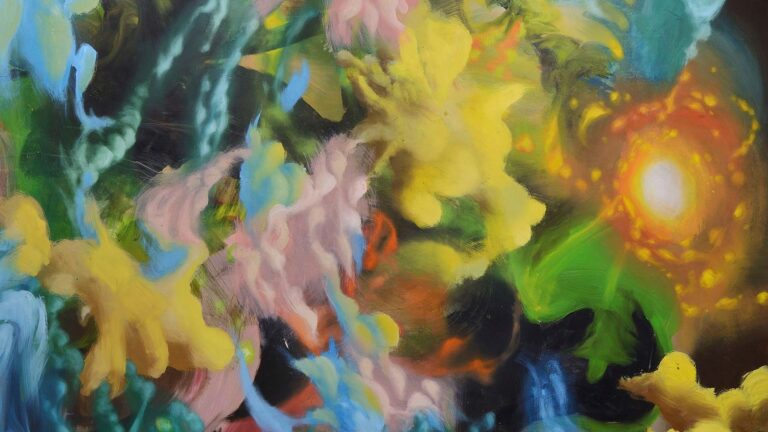The Address is pleased to present the show Black Bile and Sunflowers, a group exhibition by the artists Giuliana Rosso (Chivasso, 1992), Anna Ruth (Melnik, 1994) and Paolo Pretolani (Assisi, 1991).
In their joint artistic vocabulary, paintings and large drawings on paper become hybrid metaphors of images of materialized time, symbolic and spiritual conditions to rethink, under the influence of Saturn, the uncertainties of the fragile horizon of the contemporary world.
Starting from a rereading of their own past, focusing above all on medieval mythology, apocalyptic visions dotted with enigmatic figures such as monsters, animals, toys, symbols, imaginary characters of an indeterminate time in which the occult and the everyday mix with uncertainty, the artists suggest new ideas of organicity within a fairy-tale atmosphere.
Through a slow-paced scenography, the works manifest themselves as spirits among the rooms of the gallery in circumstances that are intrinsically bright and leaden at the same time.
Giuliana Rosso paints all the vastness, restlessness and disturbance that her interiority offers. Starting from lived experiences, the artist creates a world made of indeterminate characters, frightening scenes and emotional encounters set against the backdrop of reinvented landscapes within which there is a strong presence of fetishes typical of the 90s generation. Primordial needs, glances and desires interact in the precariousness of human existence and are transmitted, on canvas and paper, with the intention of revealing individual vulnerabilities within the community. Fragility and fears mix with a popular imagination and fairy-tale aura, altered by acid colors and spiritual charm.
“Disarm you with a simile”, an unpublished work, is perhaps the best example of the artistic sensitivity to which the compositions are subject. Giuliana creates, using charcoal and colored chalks on dusting paper, a scenario that uses almost the entire wall of the main room. What is striking, in addition to the majestic dimensions of the drawing, is the artist’s ability to make the viewer entering the scene by subverting the classic order of vision. The work tells the restlessness and uncertainties not only of the relationship between man and nature but above all of one’s own interiority, typical of the adolescence phase and which tends to continue for the rest of our existence. The main figure is portrayed with her head resting in the water, almost unconscious, her gaze in the void, her body floating in balance between life and death, while other subjects such as a dog and a snack vending machine are placed alongside her in a combination of memories and imagination, giving a marked irony to the drawing.
Entering the other rooms of the gallery, what appears when observing the paintings of the Czech Republic artist, Anna Ruth, seems to be the erosion of everything we have apparently set aside, and that has so far made up part of our collective memories: fragments of Gothic architecture, symbolic structures steeped in culture and history, suggest narrative cycles balanced between a glorious past and the fear of the disturbing dilemma of the present.
The softness and refinement of Anna Ruth’s painting directly invites us to sink into the limbo between dream and reality to dissolve into intimacy and to open ourselves up to playing with cards with archetypal symbols. The predominantly monochromatic and earthy color of the paintings, the unbridled passion for organic materials and the pulsating nature of recurring animal and mythological forms such as horses, plants with hallucinogenic power, transverse flute musicians, angelic and demonic figures determine a combination of a sense of uncertainty and transcendence, collective sharing and dreamlike symbolism.
As the canvas in the cave of the gallery entitled “Inner Garden” suggests, simple arches can transform into a principle of mythopoiesis on the unknown.
The interest in the mythological nature of the subjects and the symbolism, the emotional immersion in the sibylline and impenetrable world full of spirals resembling ancient fossils, (as in the work “Four-headed distress, Epopea”, created by the artist, Paolo Pretolani, using metal leaf and oil on cotton) is not only a common symptom of the society of the end of the century, but also a widespread strategy belonging to contemporary society. In this regard, the great suggestive force of the works of Pretolani indicates the path of the artist to embody an ecstatic experience, with the gaze turned to themes and stories of different cultures and religions, acting as a mediator between different historical-cultural forms. Paying homage to the “painter of light” Vincent Van Gogh, in the work “Sunflowers”, the artist reflects on the unfulfilled desire to distance oneself from one’s own ten-sions, taking refuge in a radical alienation of the person and the world, embodying the search for lost unity. The large work entitled “Putiferio, Capriccio”, exhibited in the last room stands out like a post-apocalyptic fresco in a deconsecrated cathedral. It manifests itself as an overwhelming dance composed of a majestic union between figuration and abstraction, in which gestures typical of Western painting seem to cling forcefully to demonic Japanese figures, demonstrating an expressive search for extreme sensuality in an anachronistic stratification of the weight of spirit and time.
Trying to imagine the world around us is a profoundly humanist project and, as such, is full of tragedy and absurdity.
One might say of necessary “melancholic creativity”.
-Riccardo Angossini
